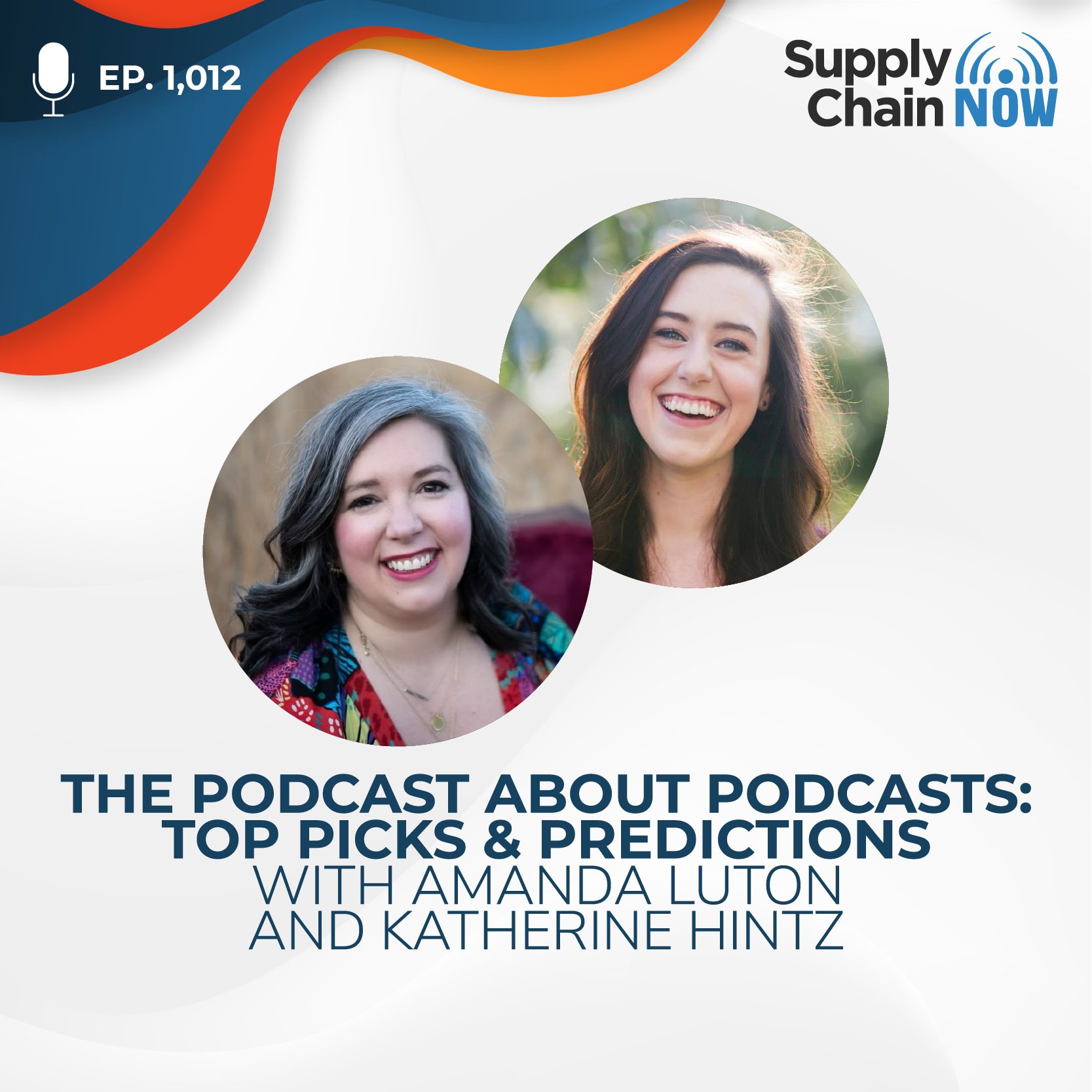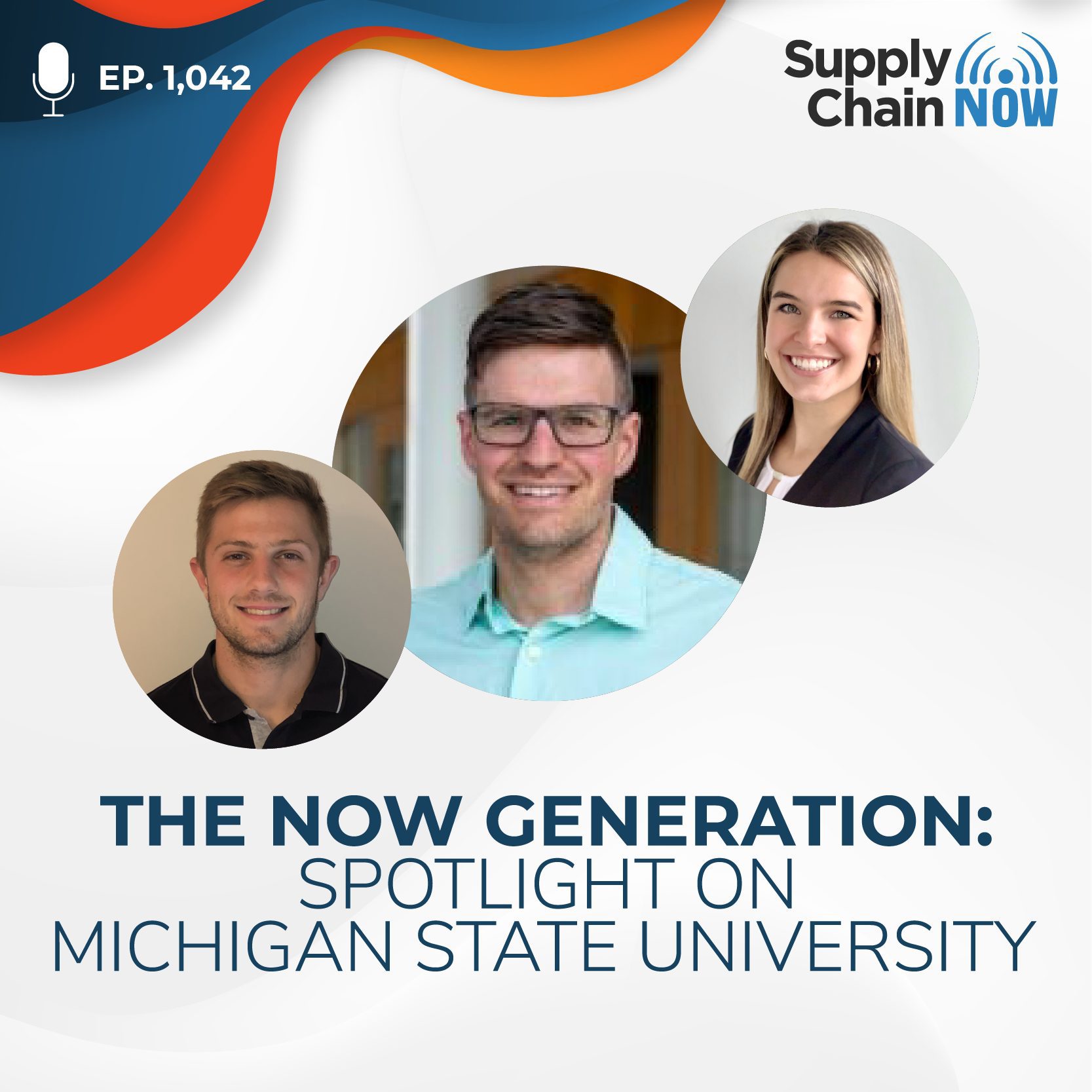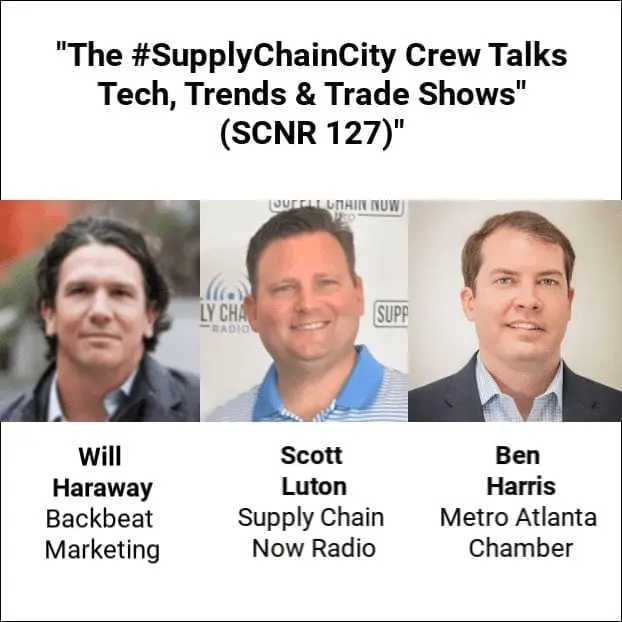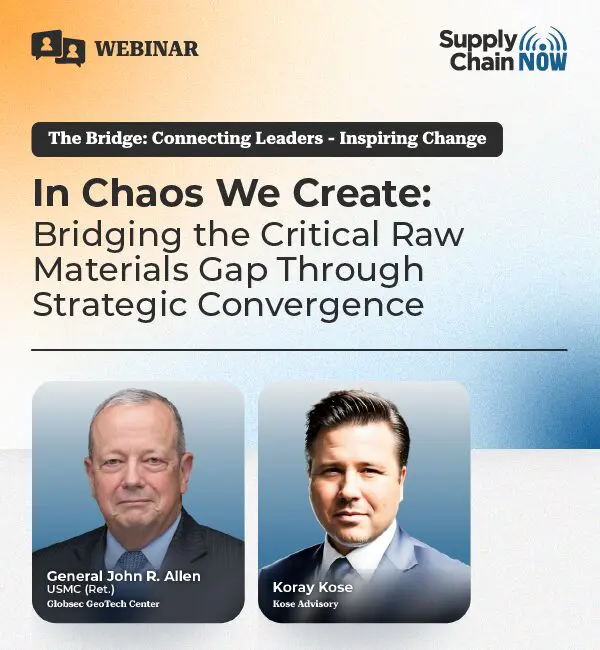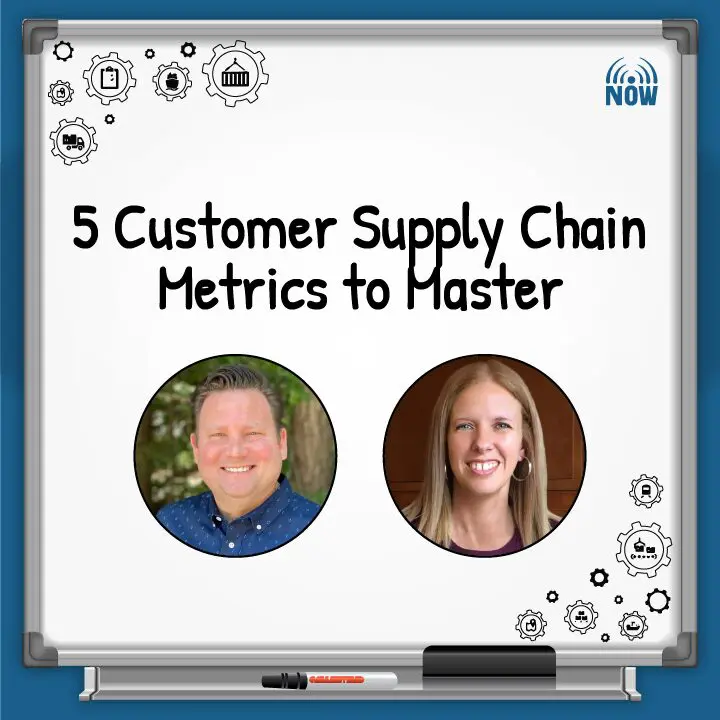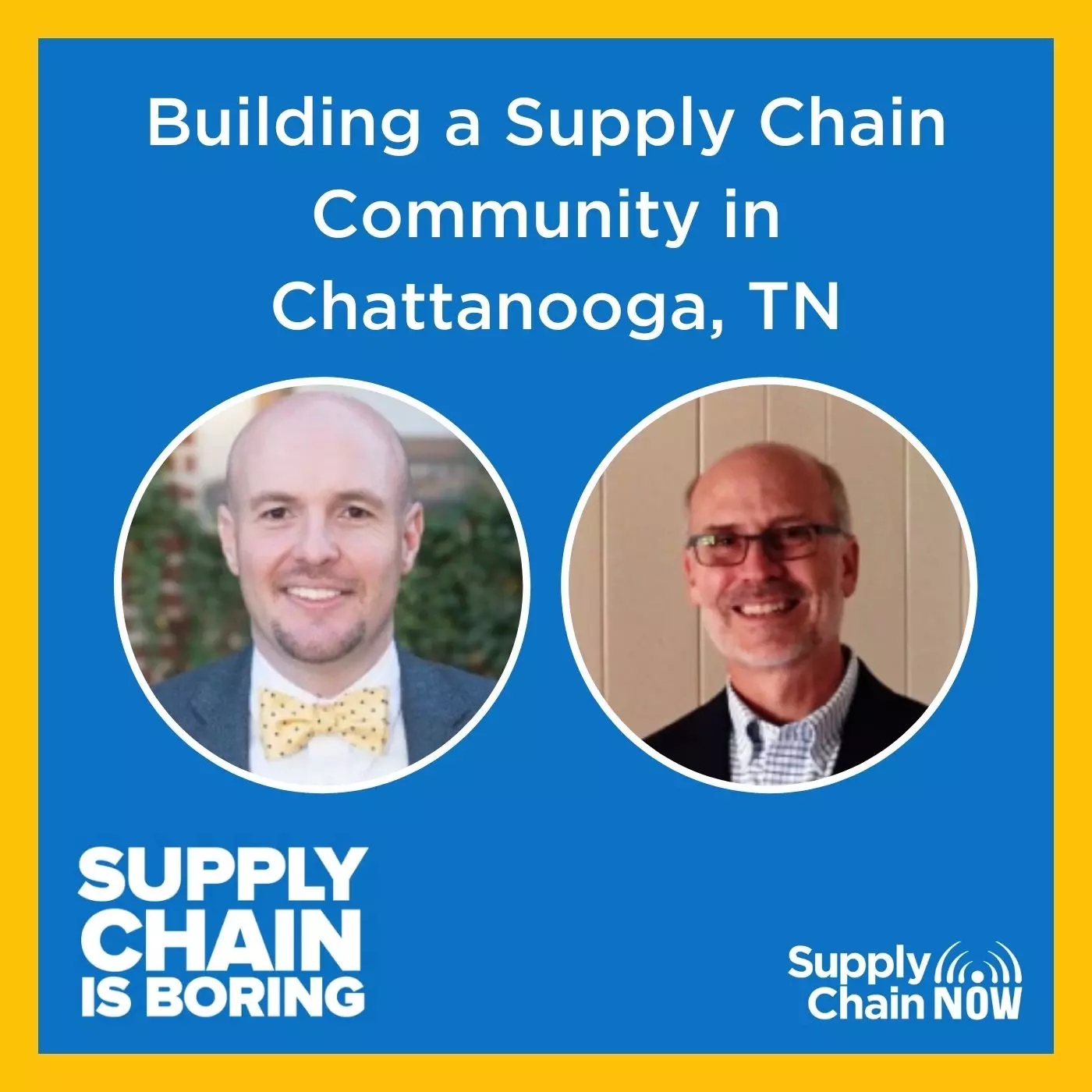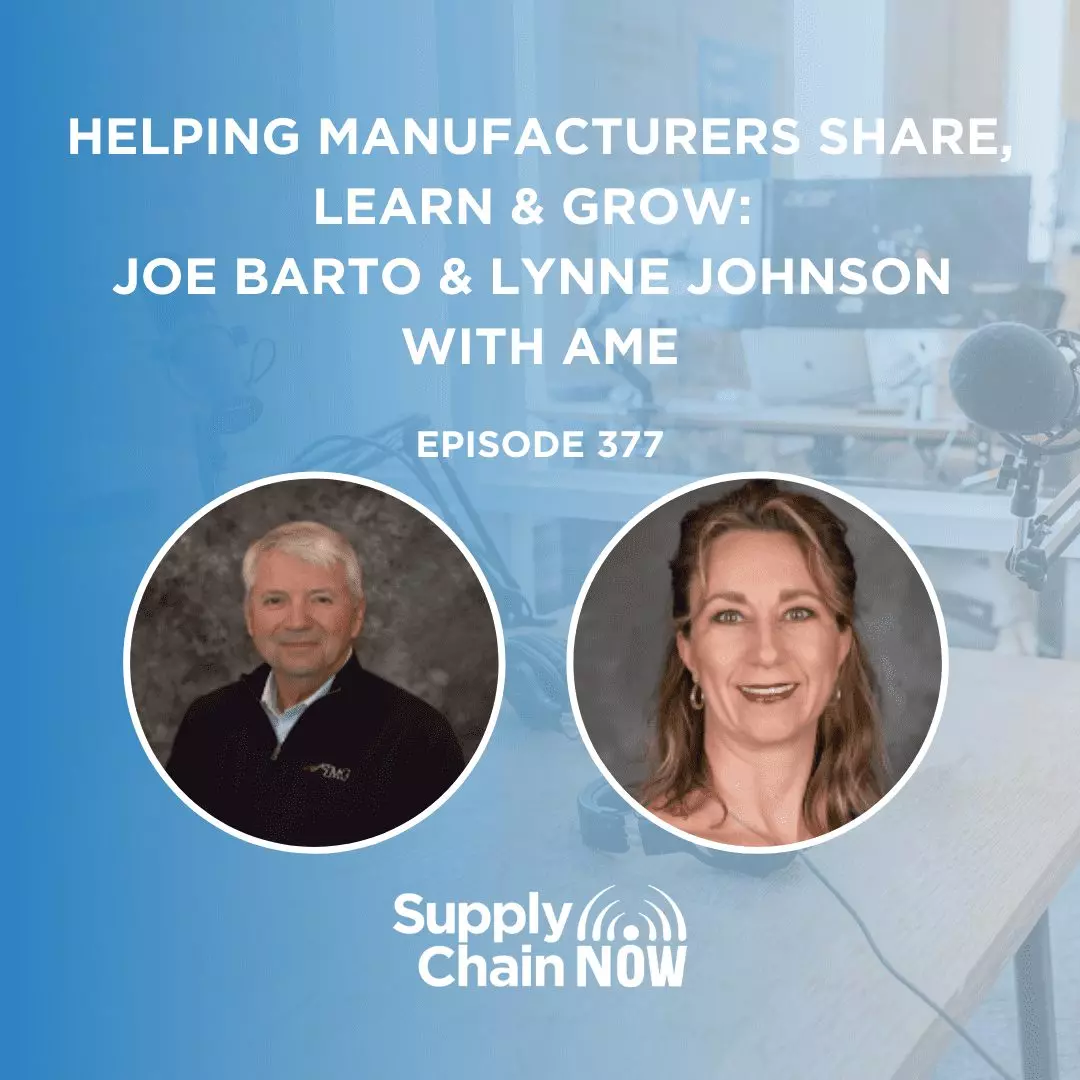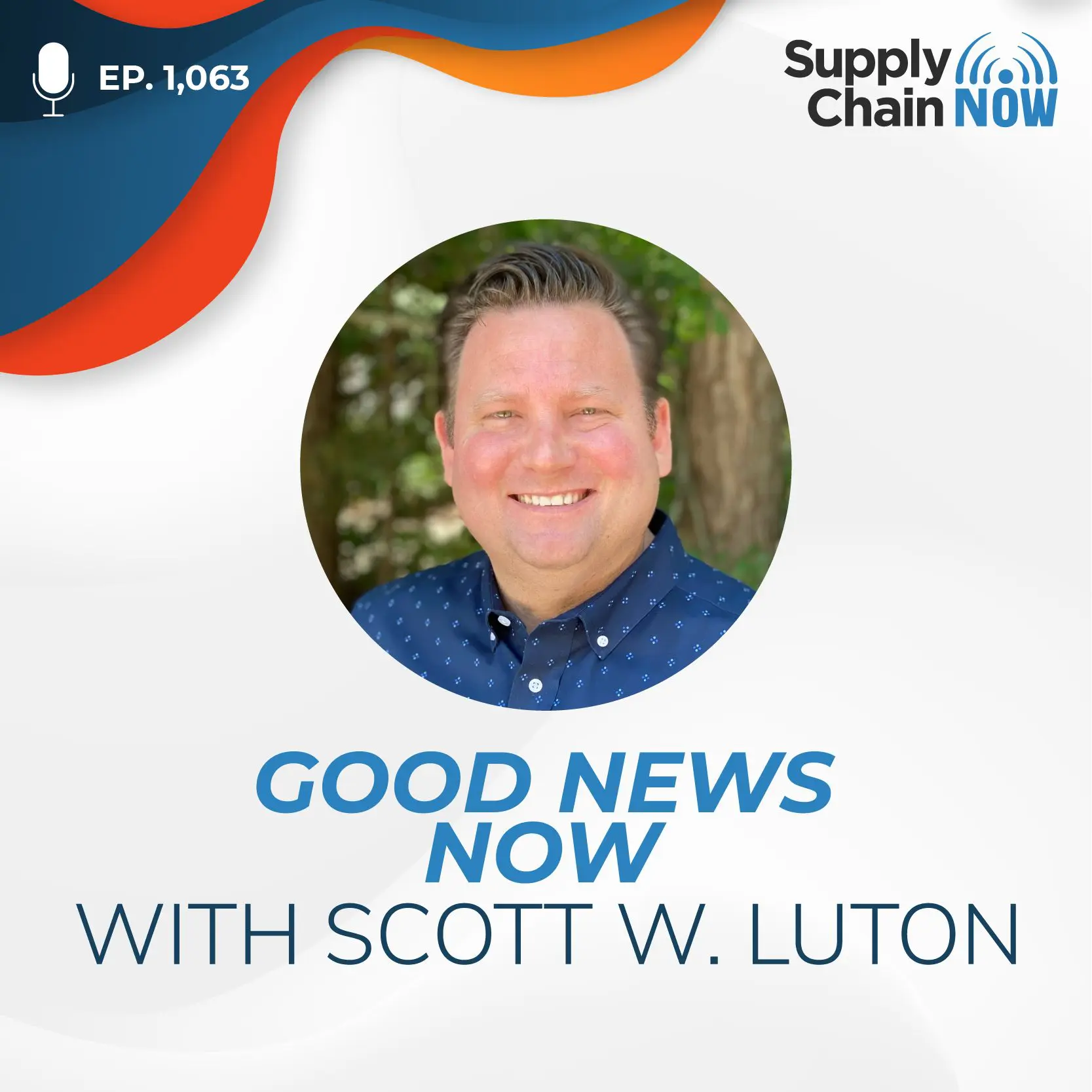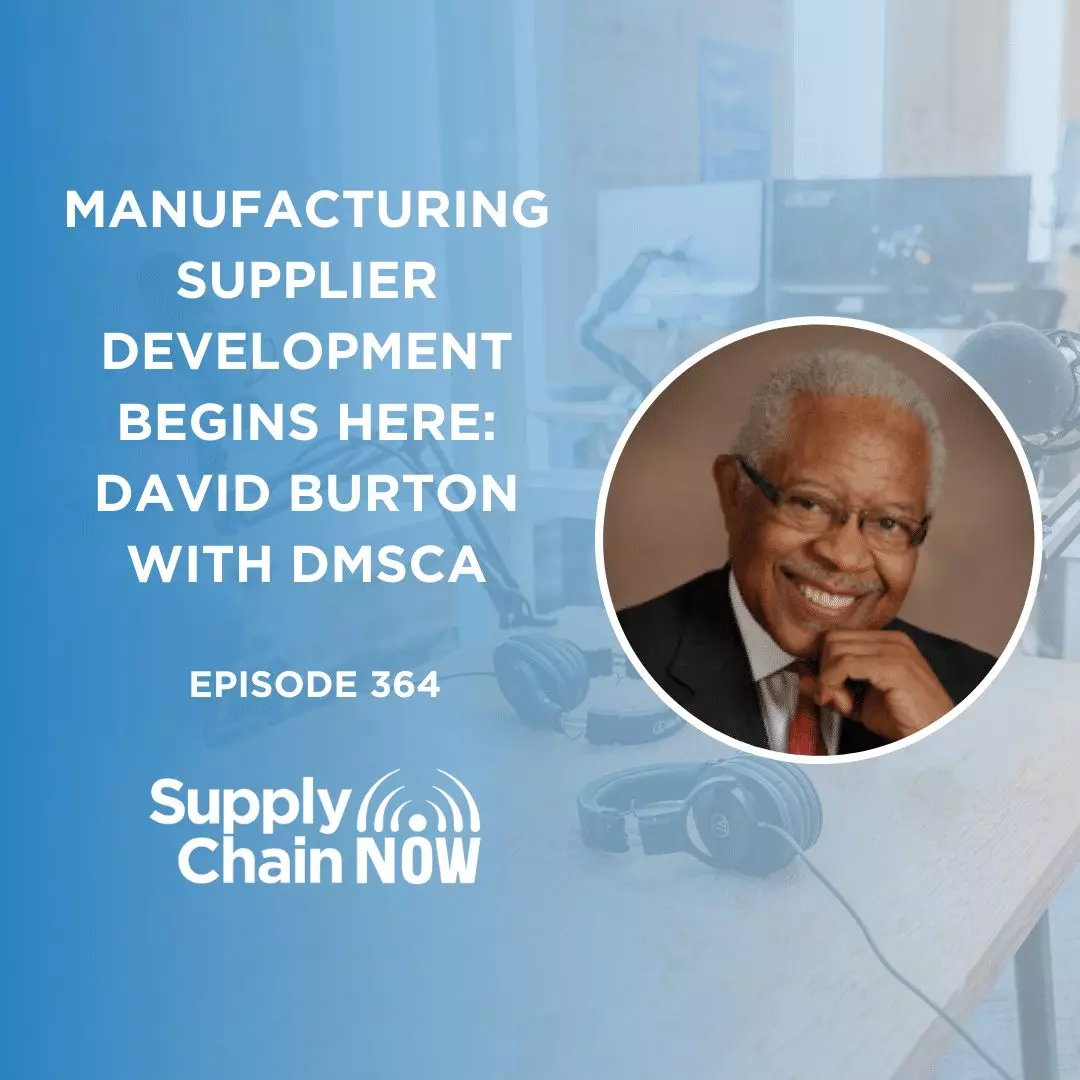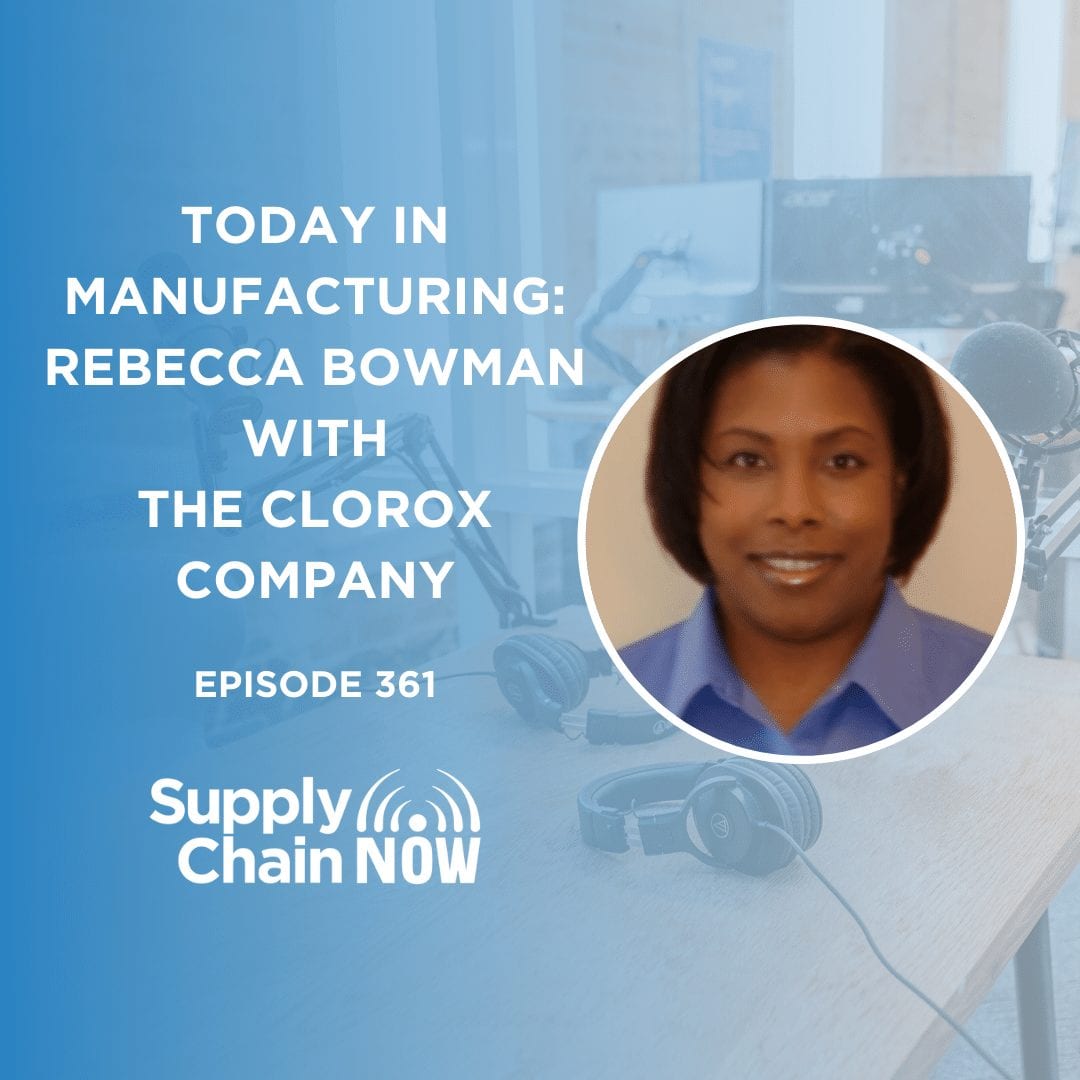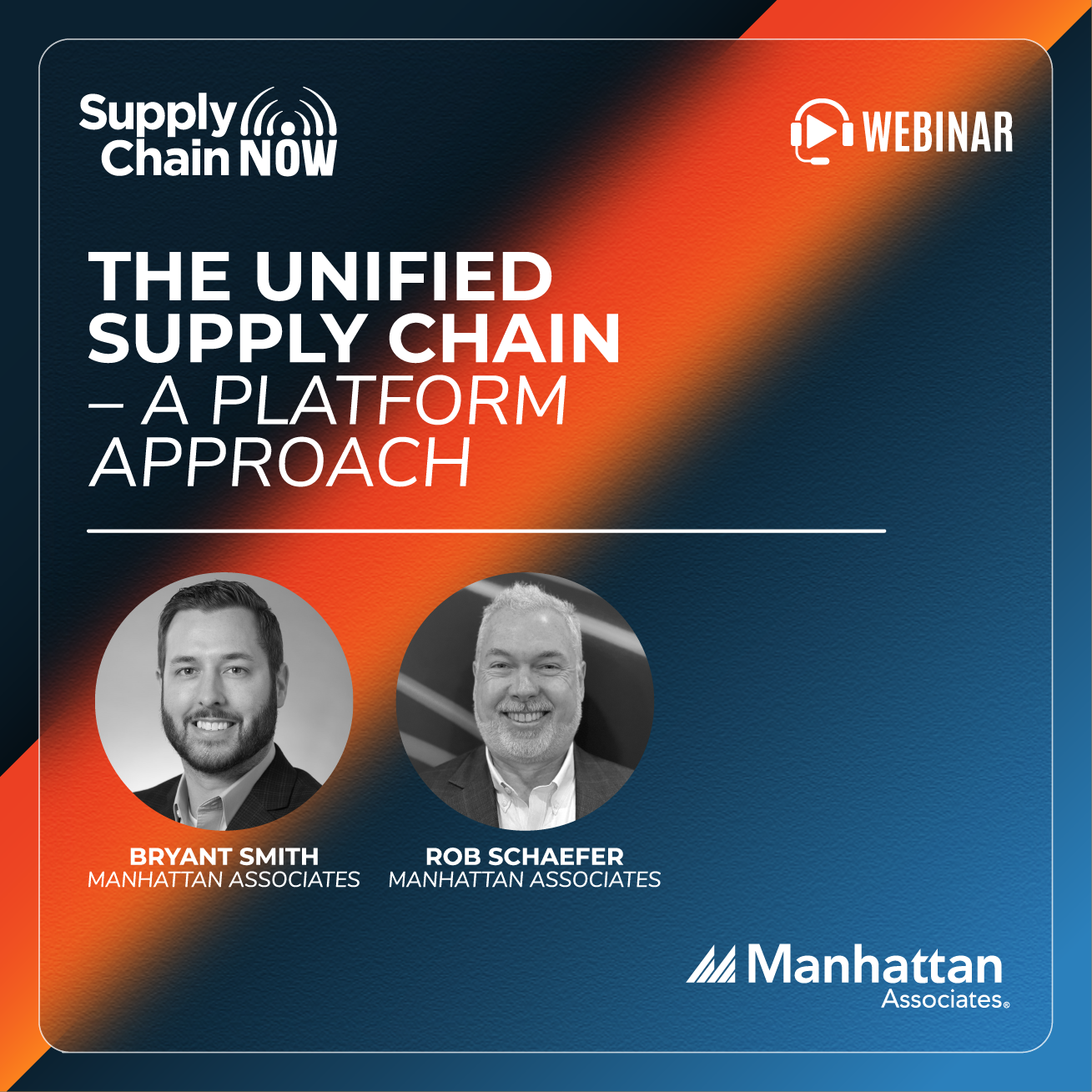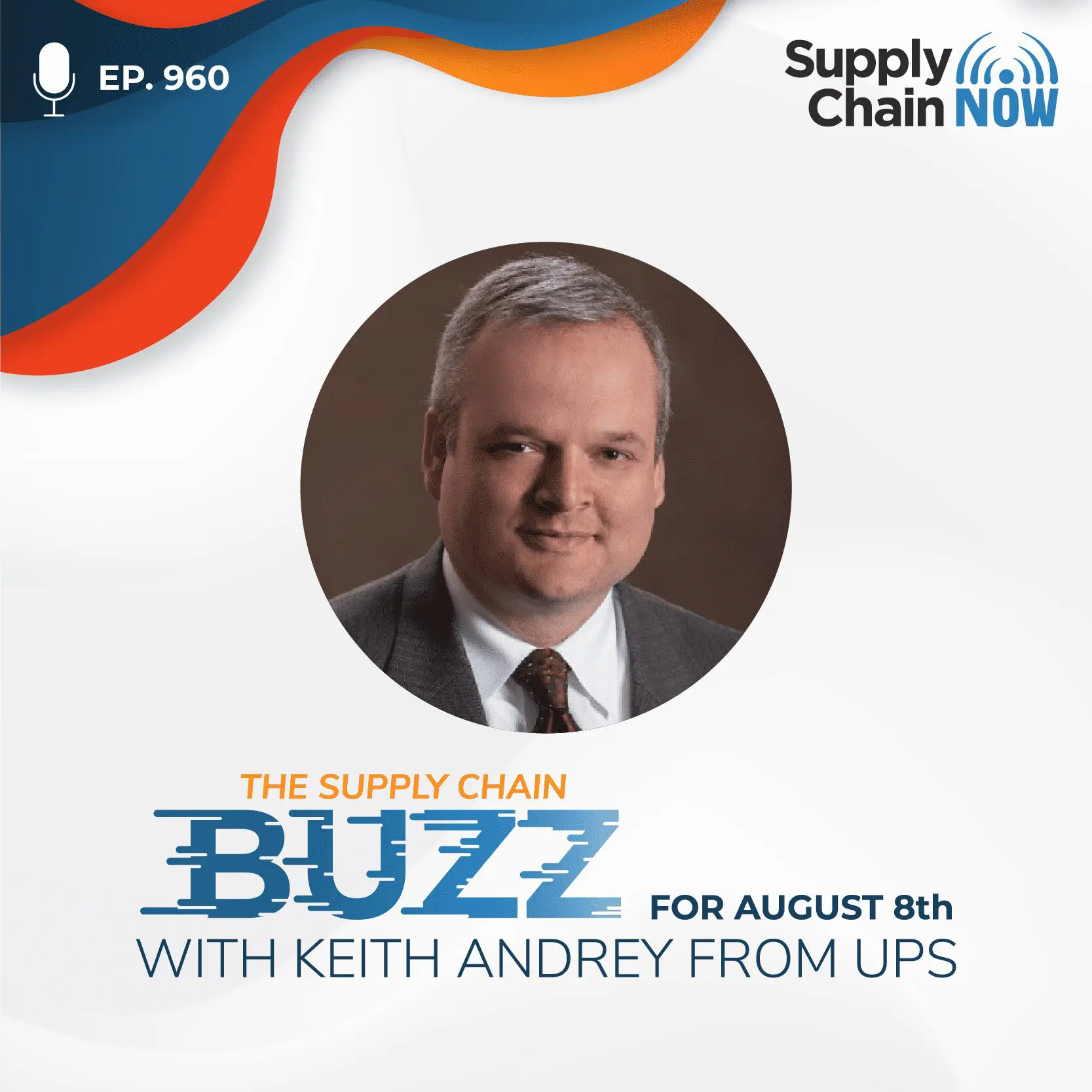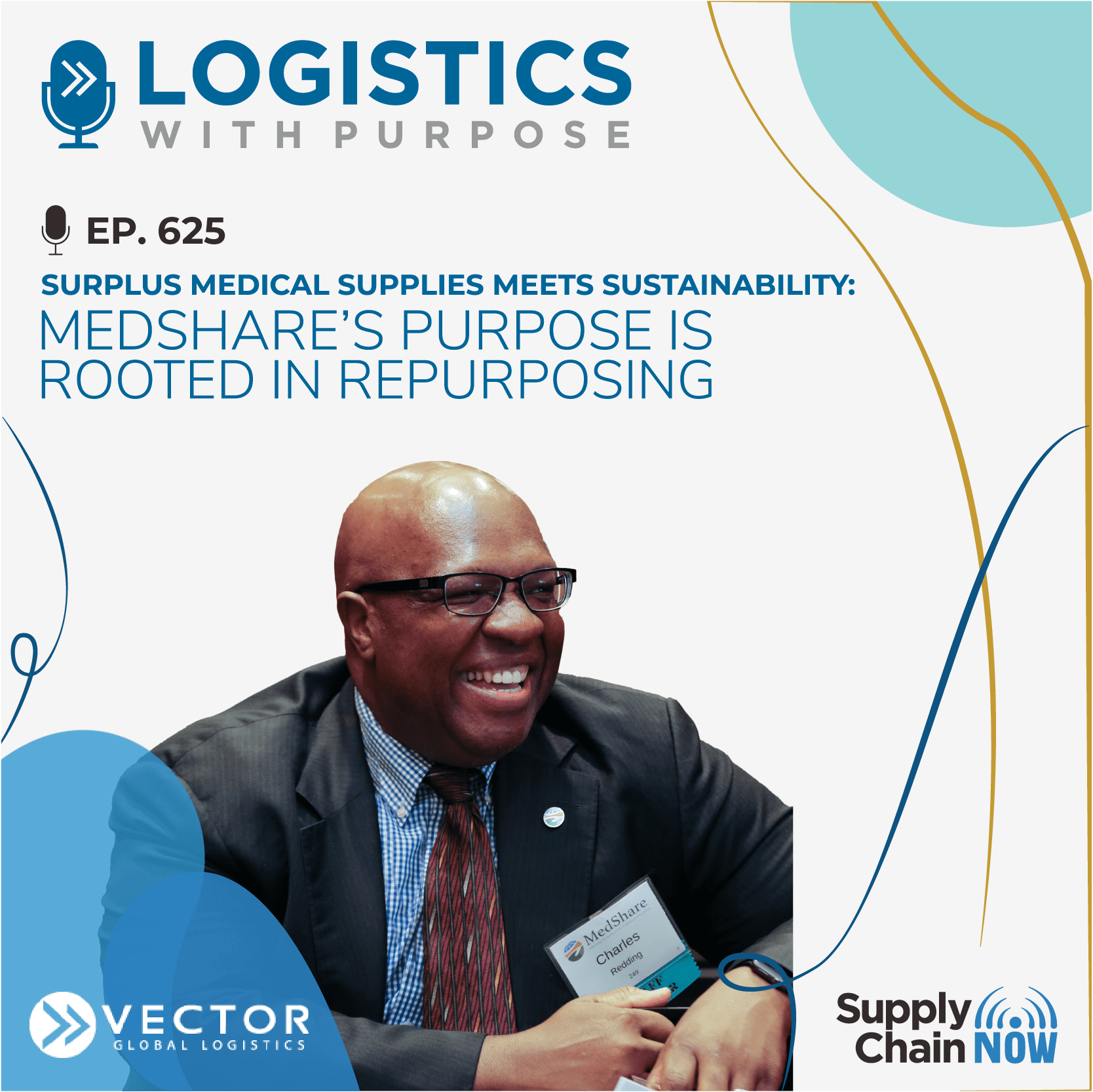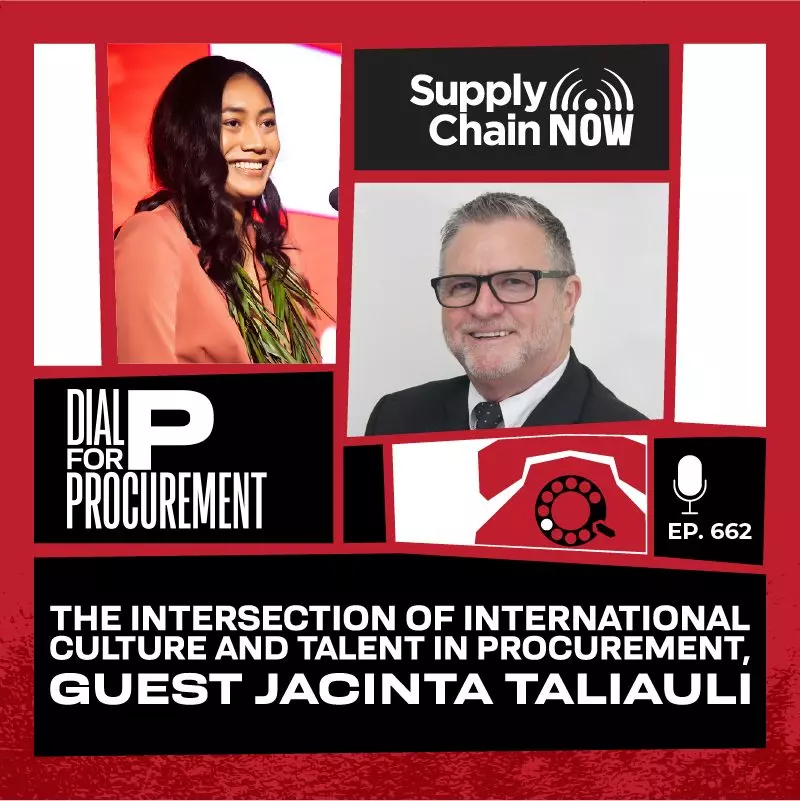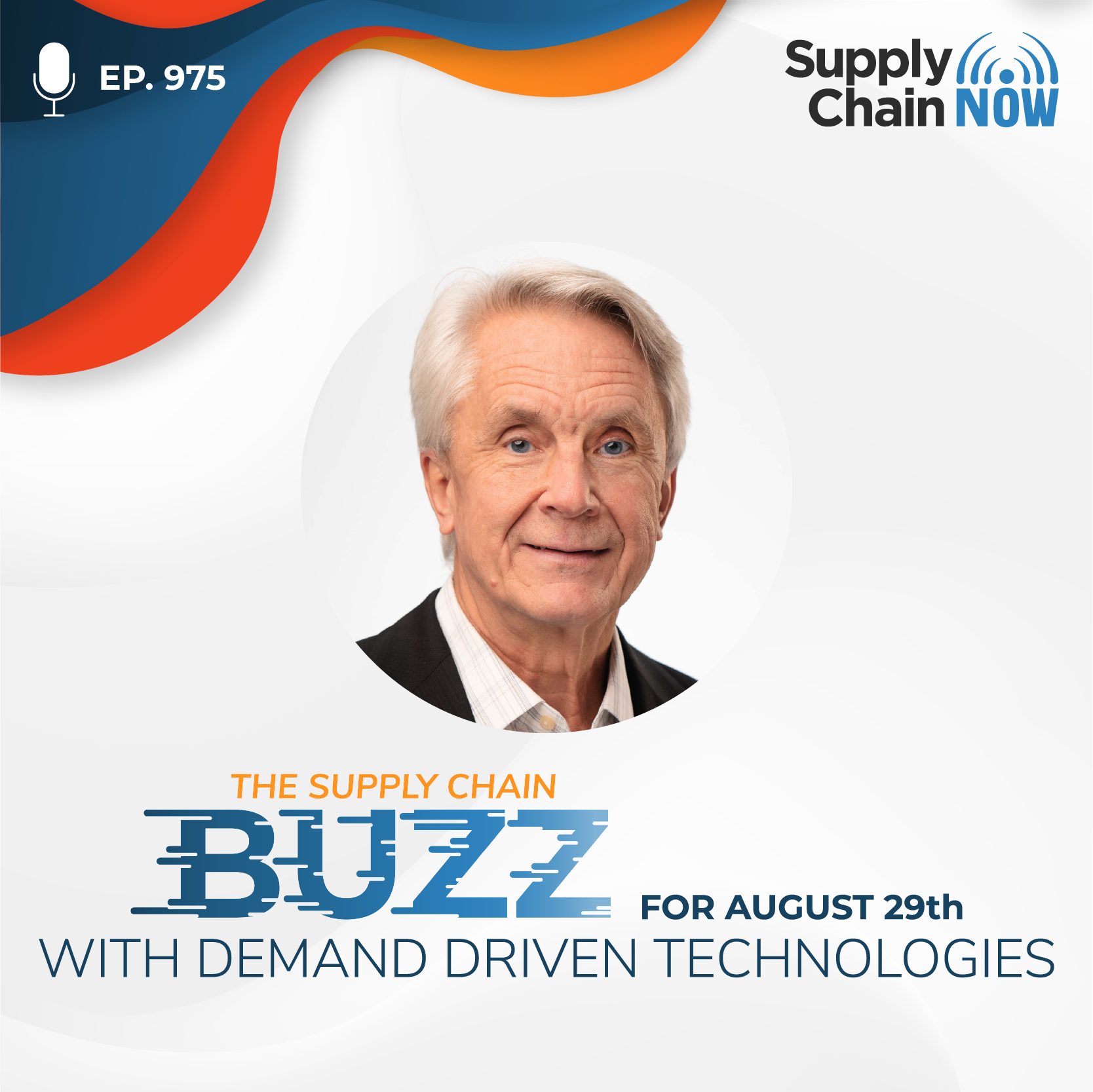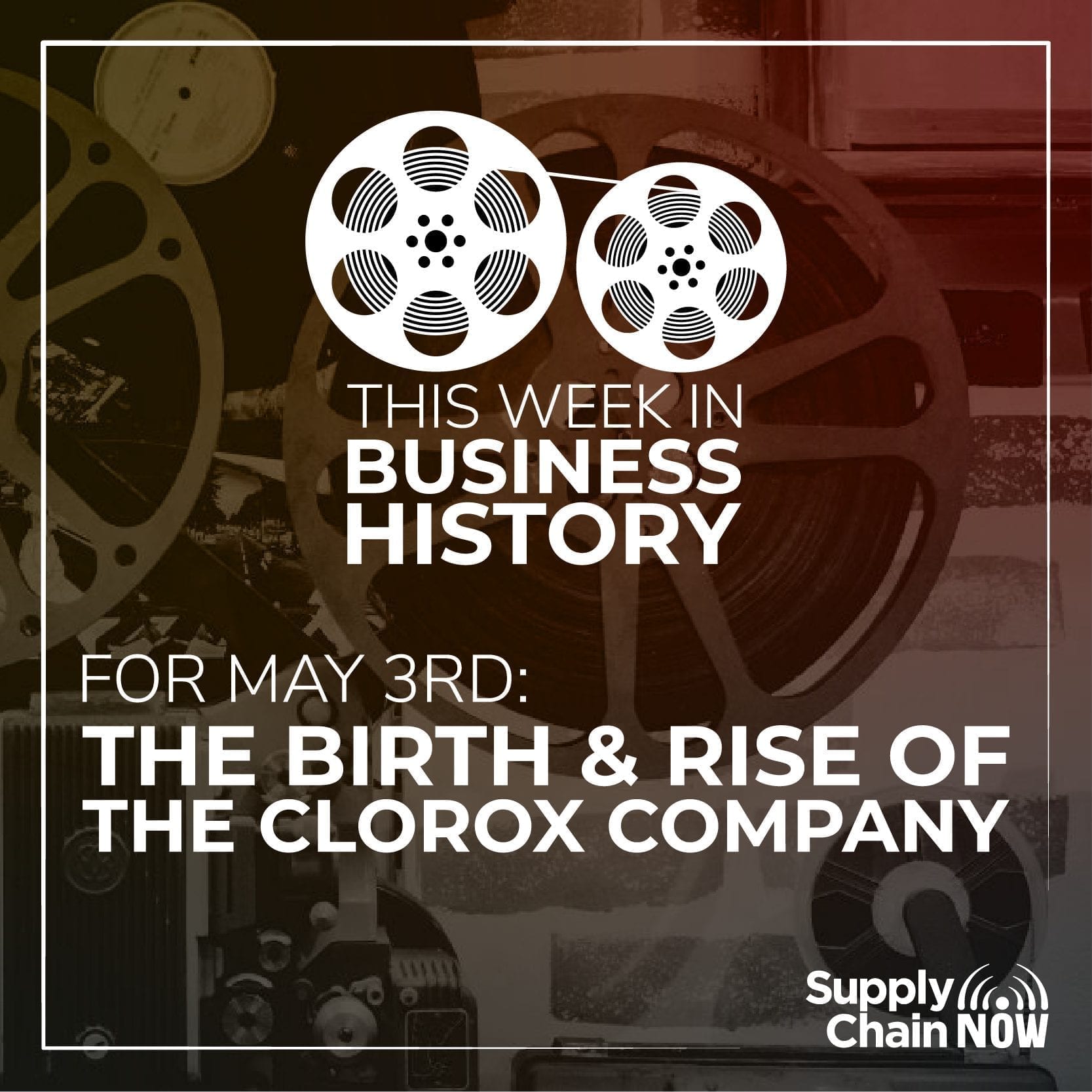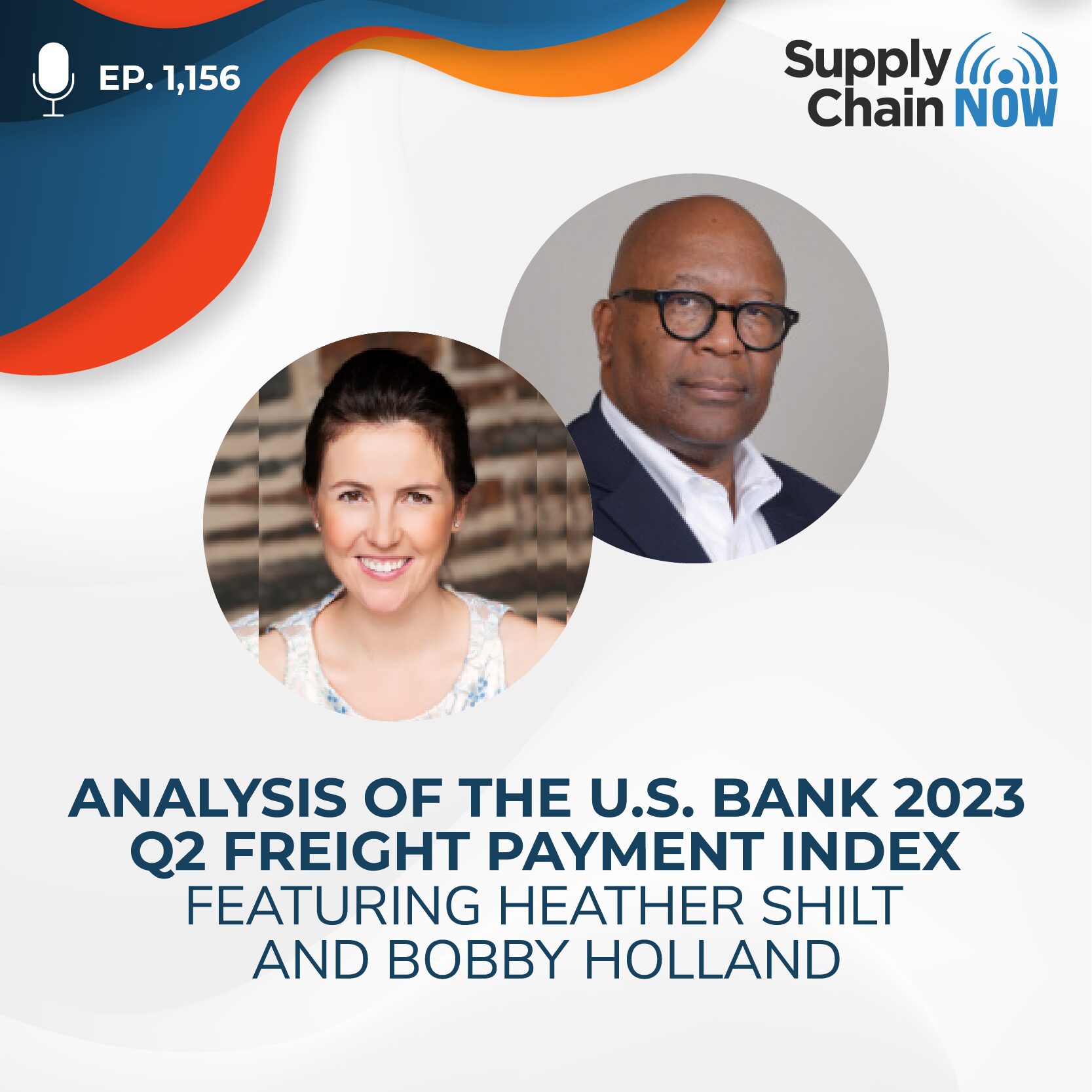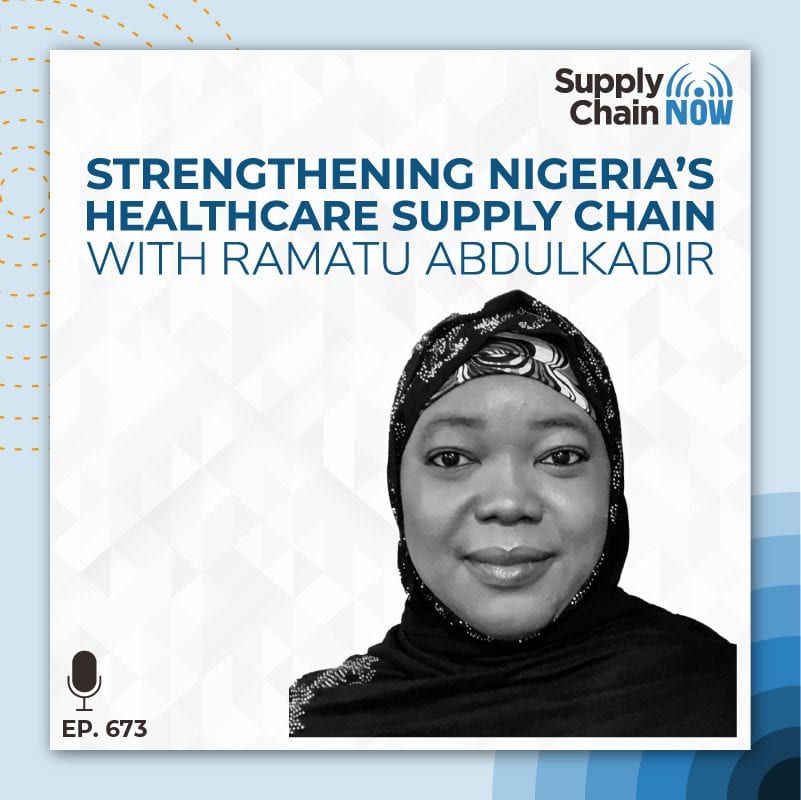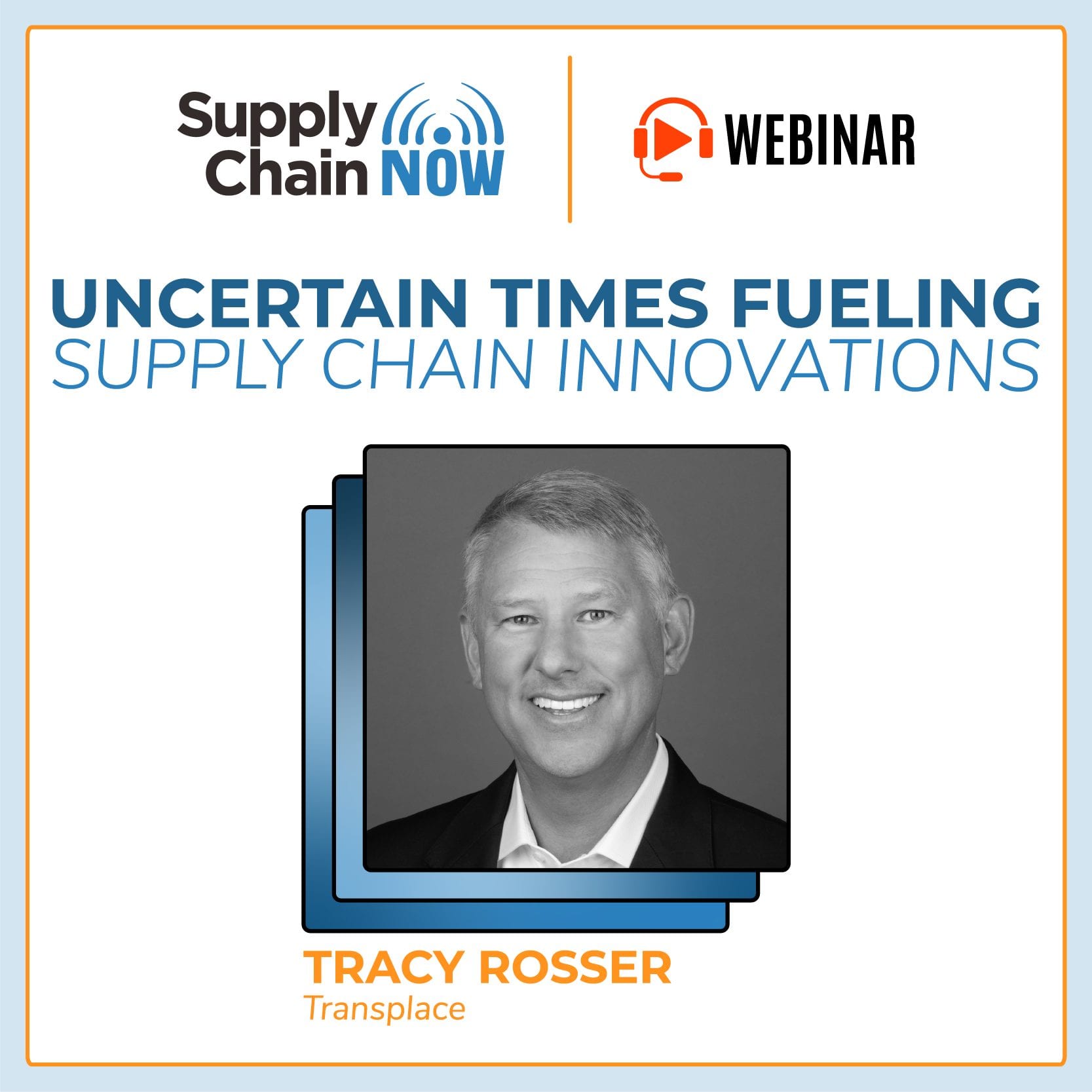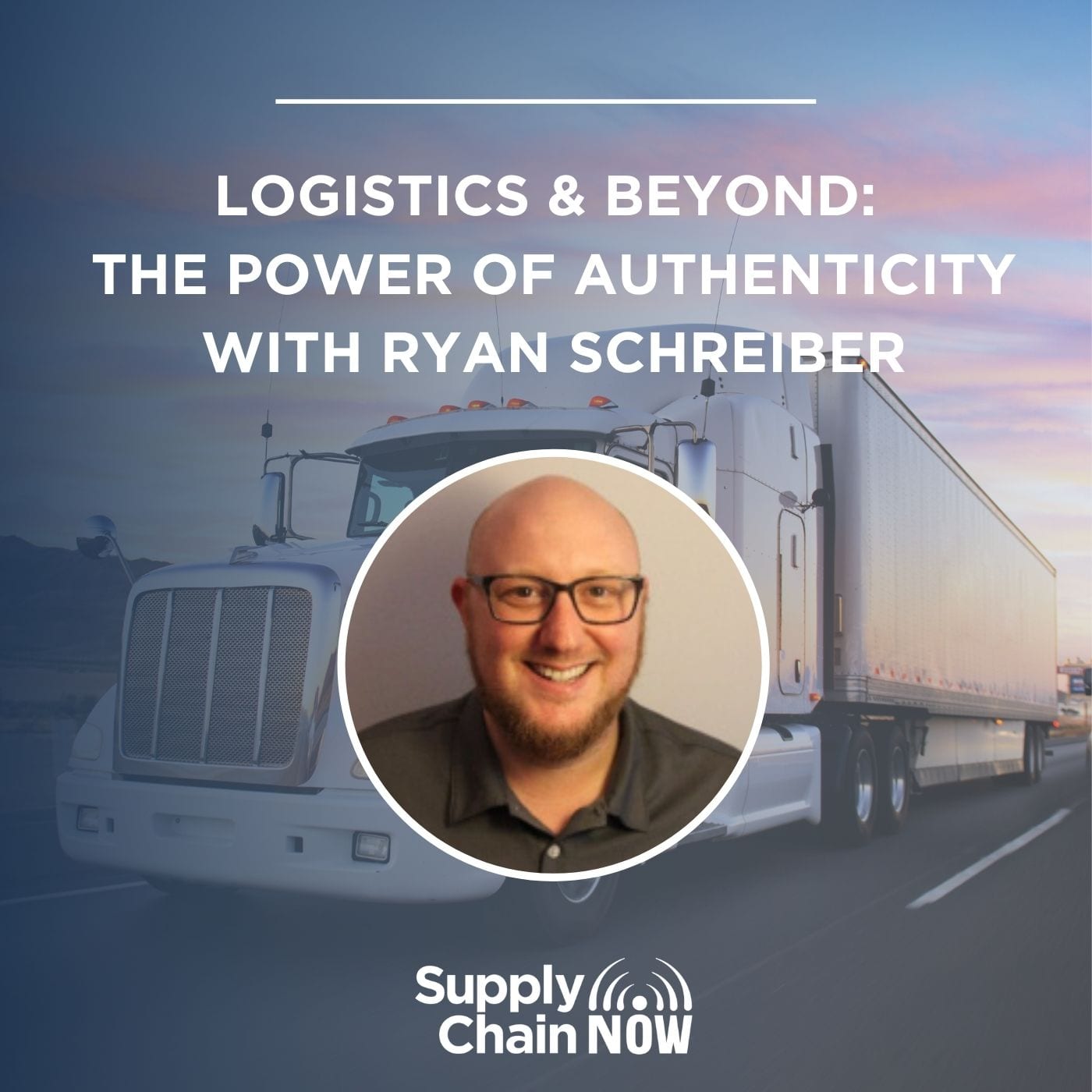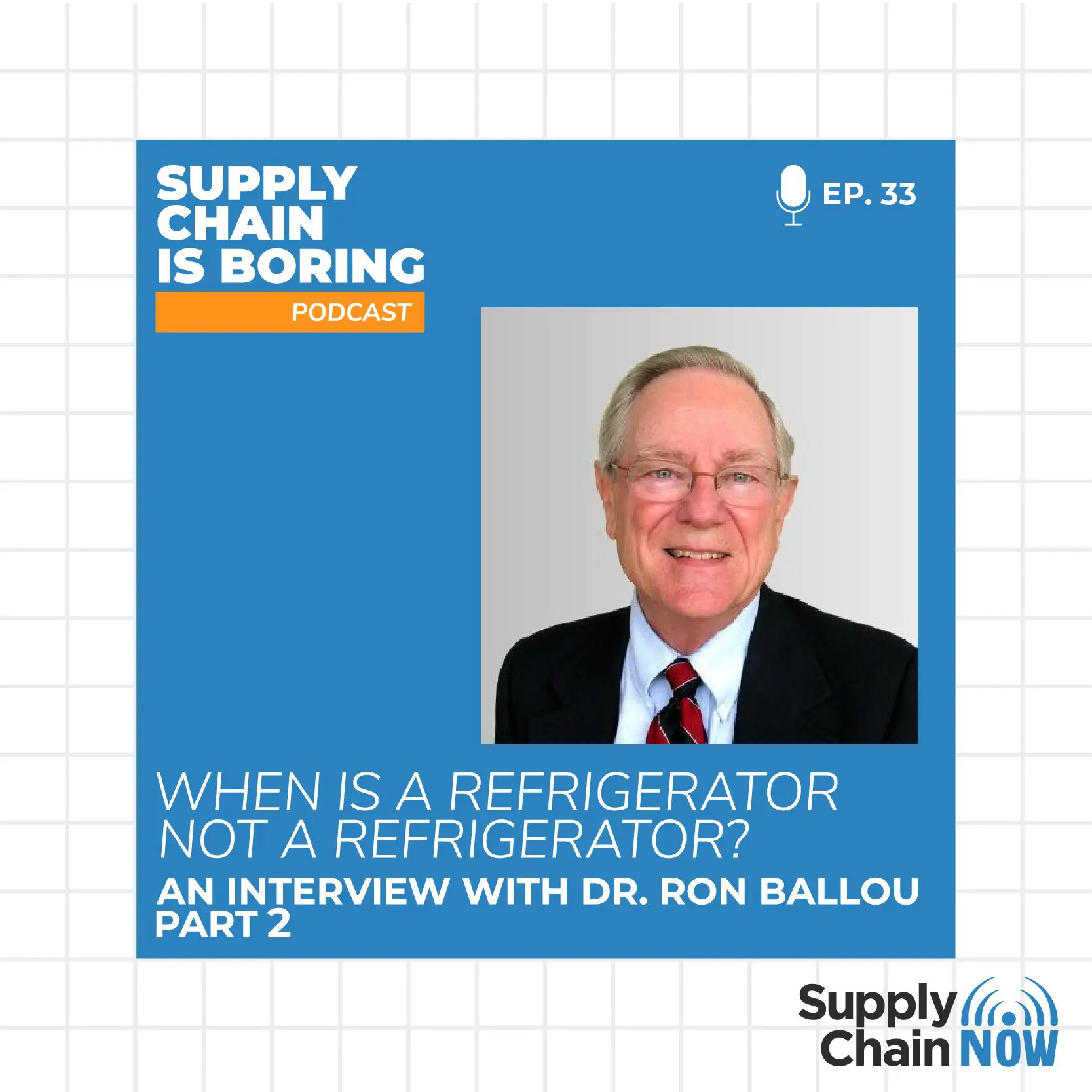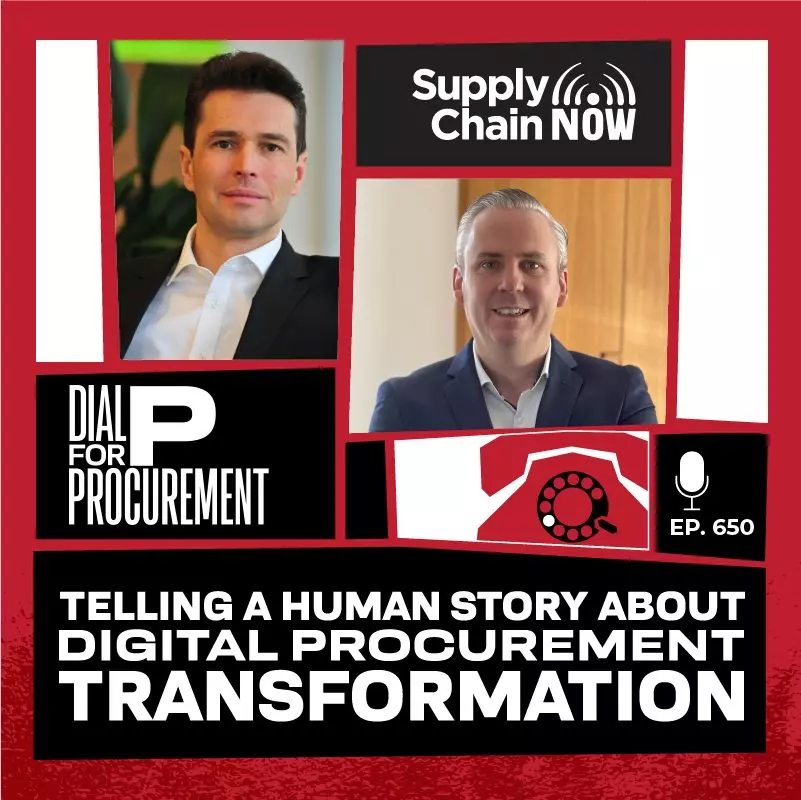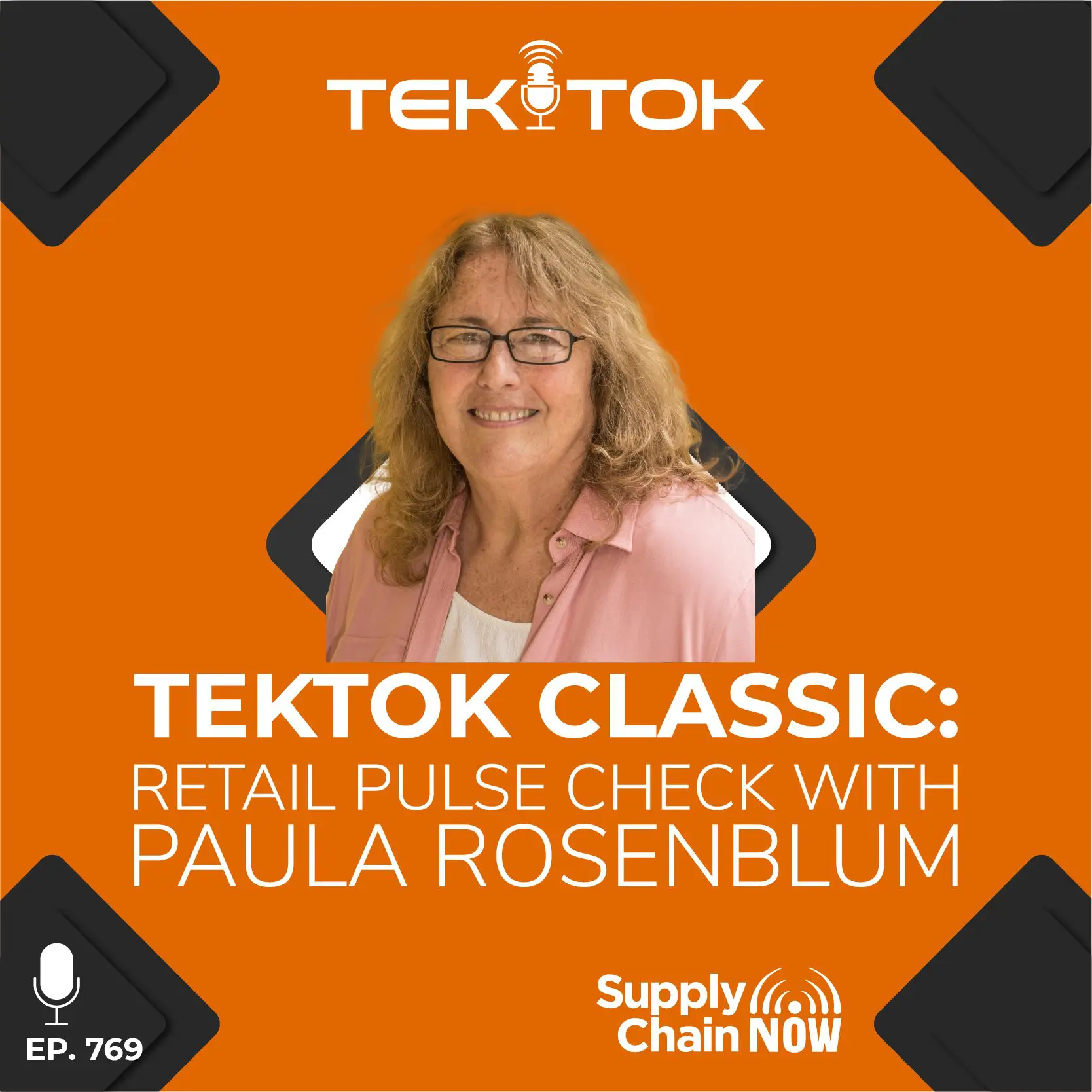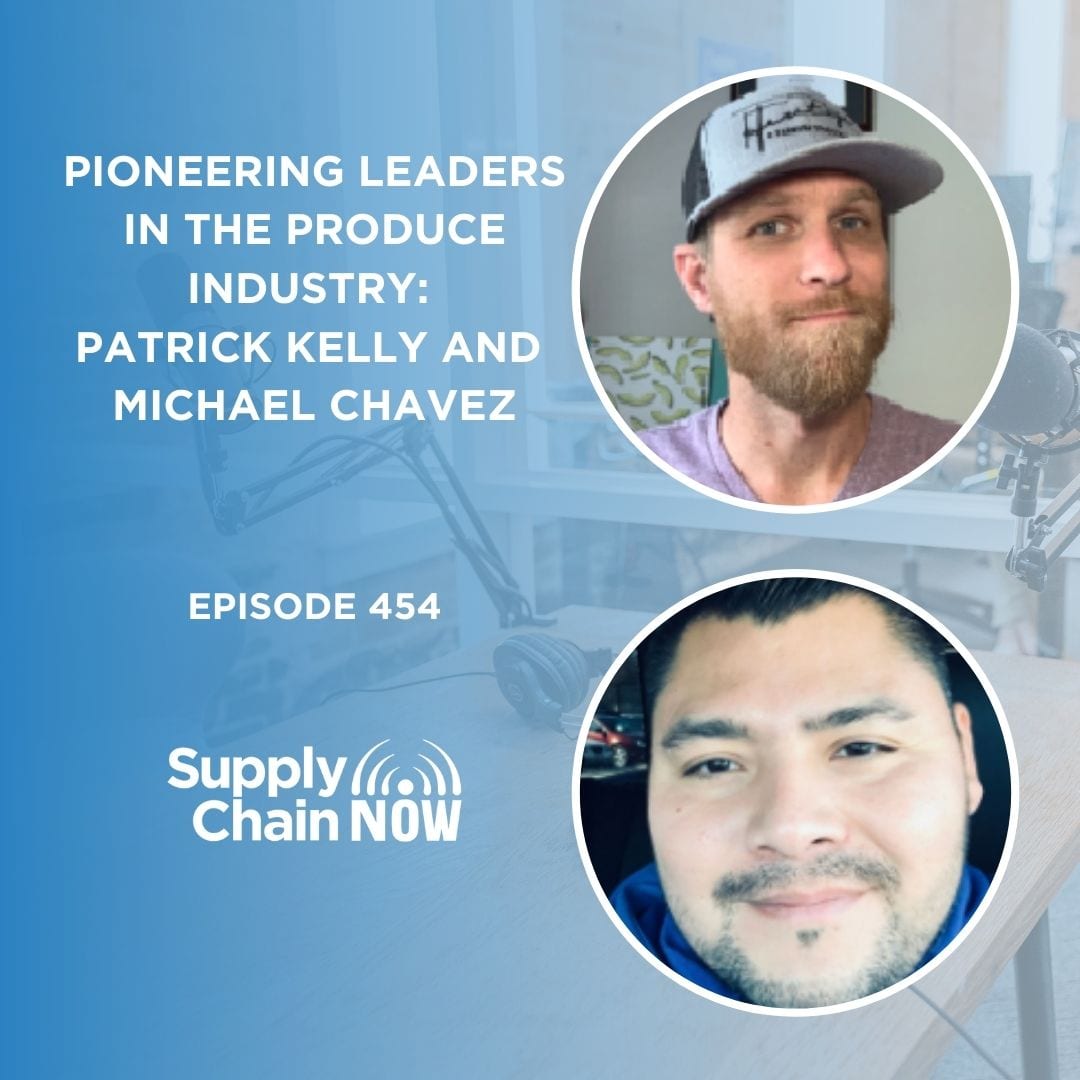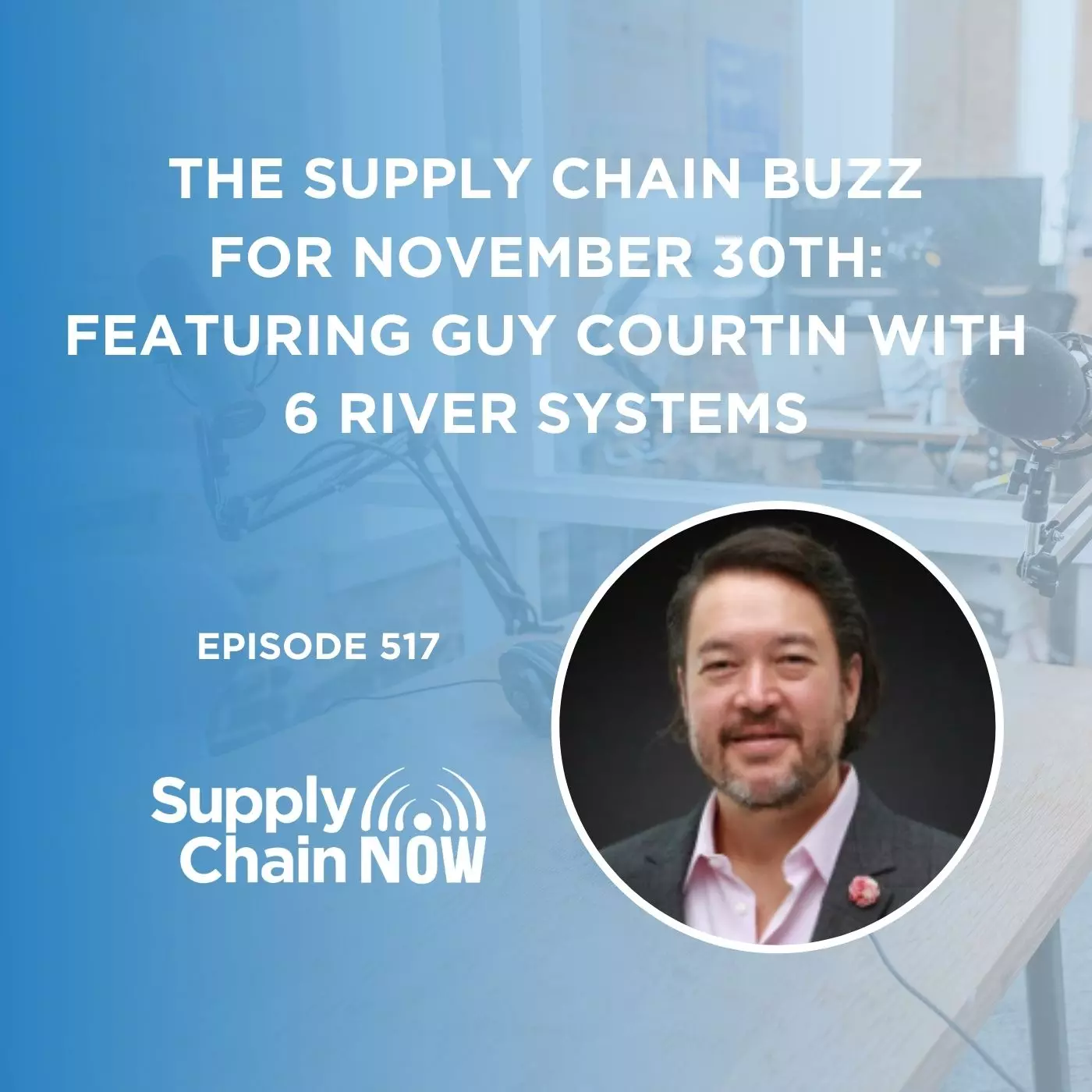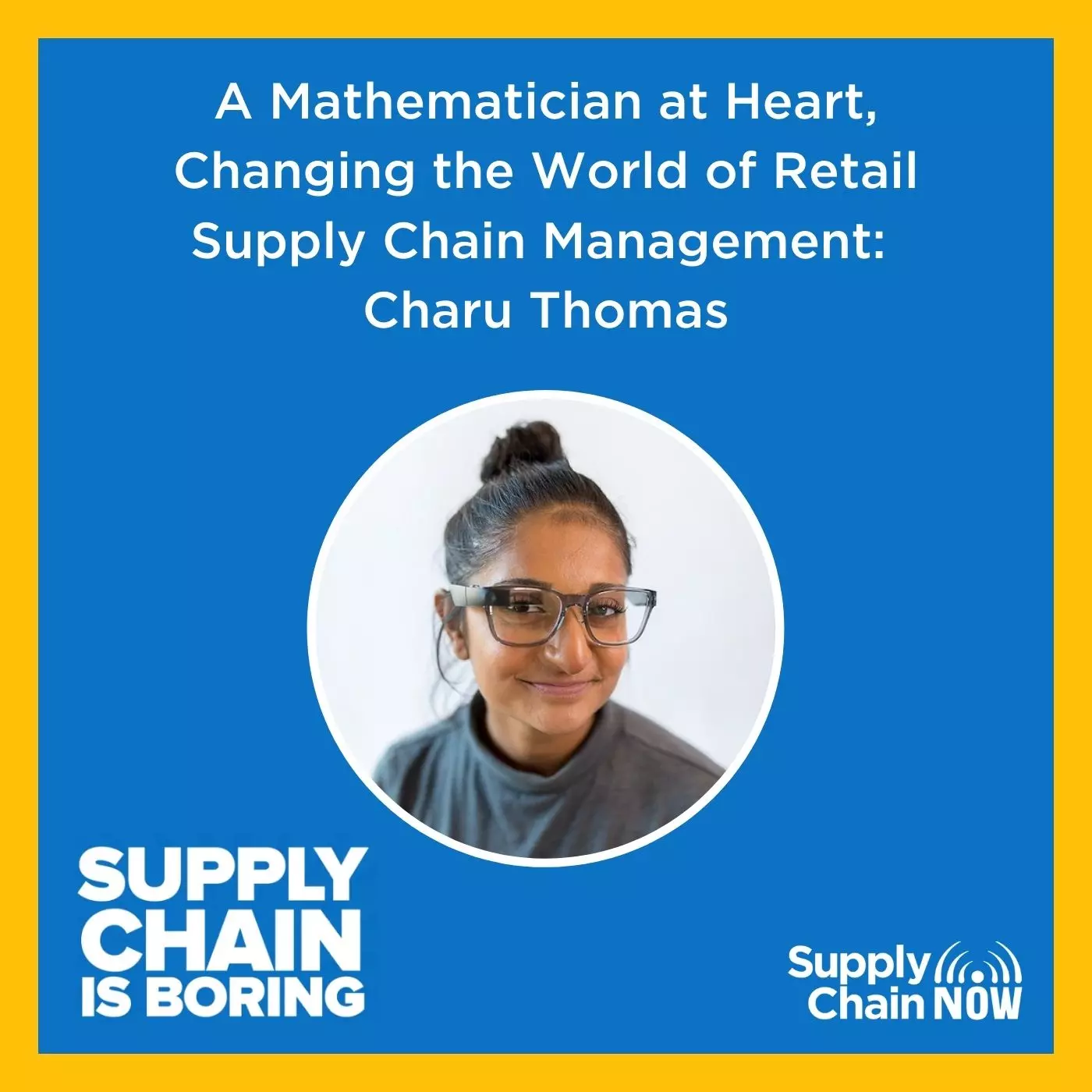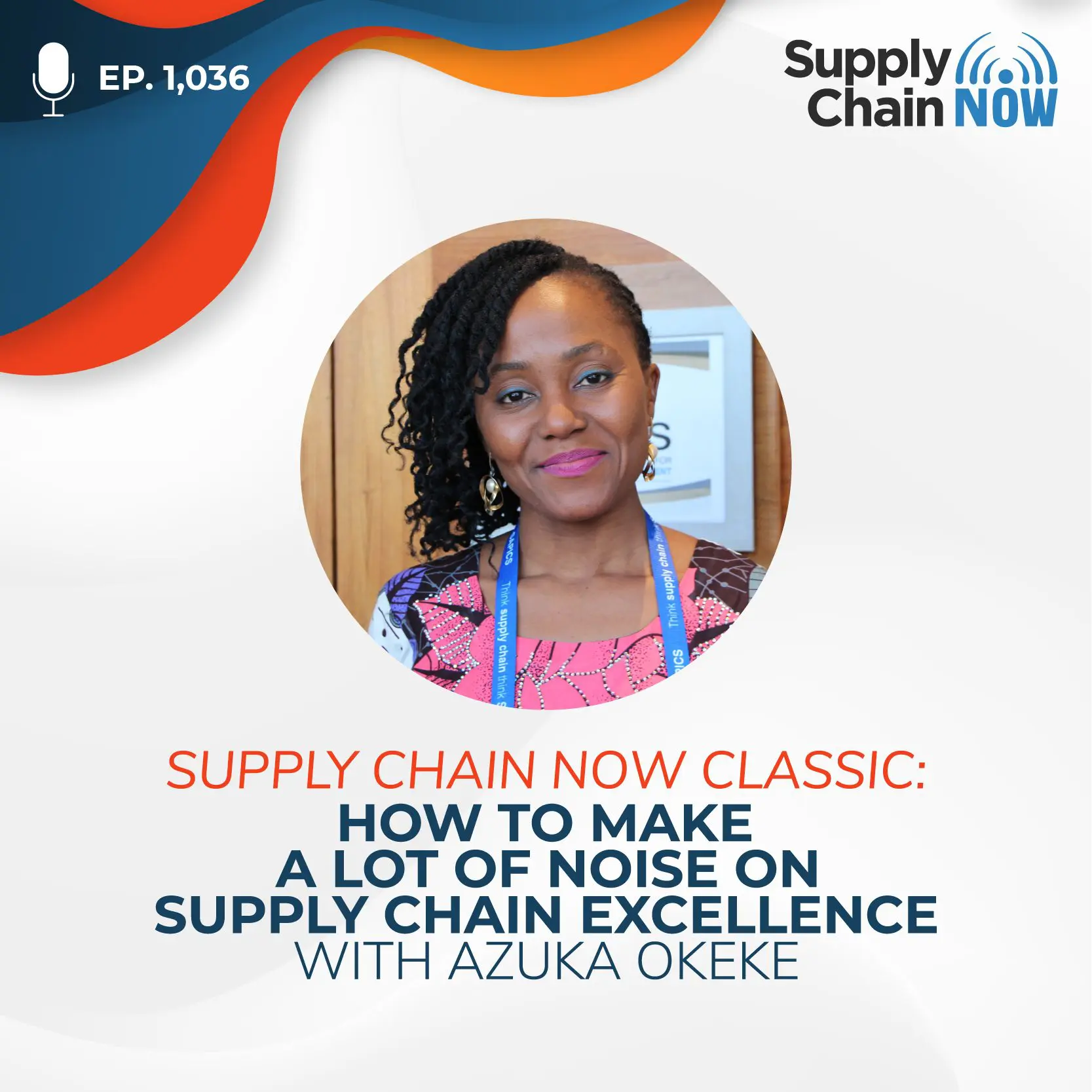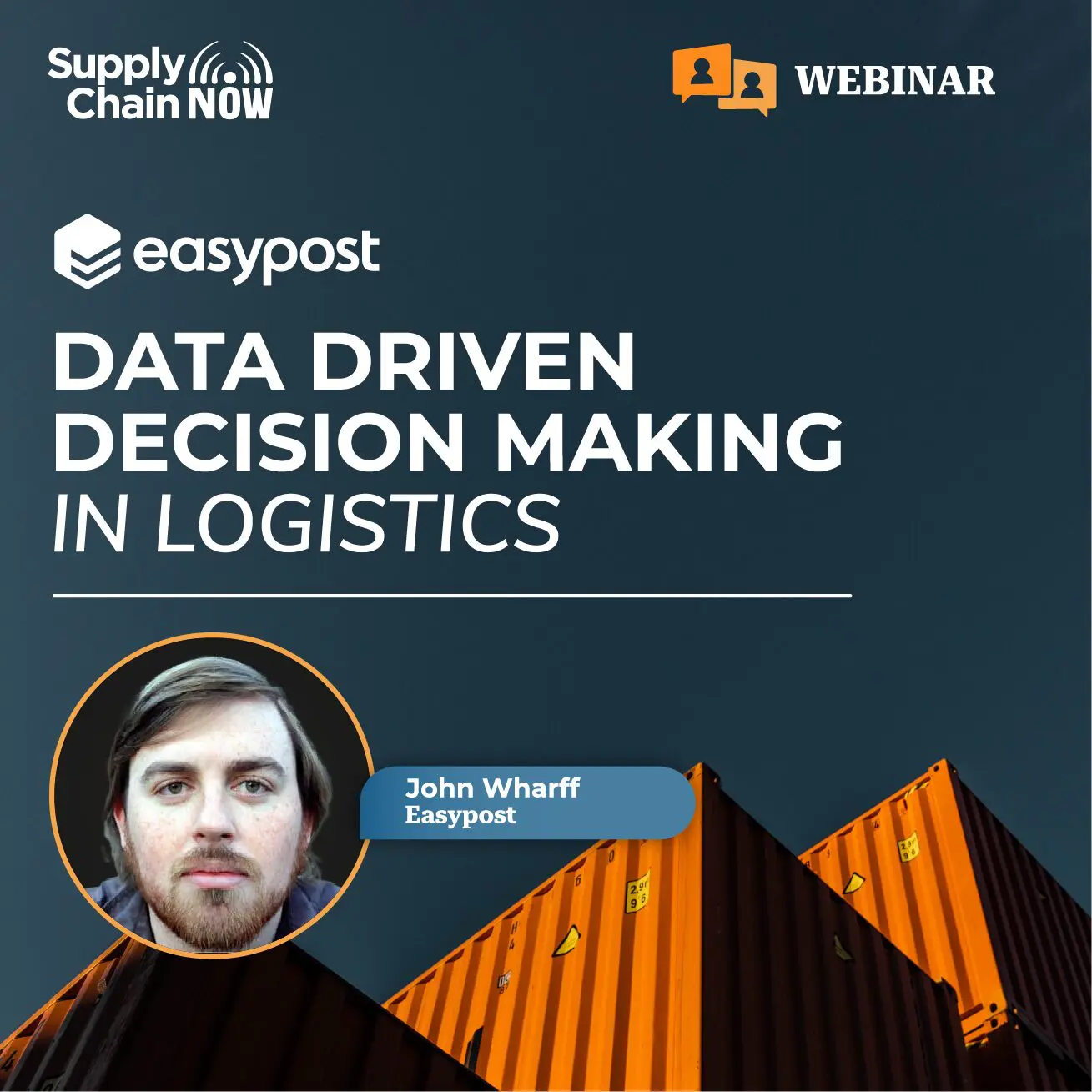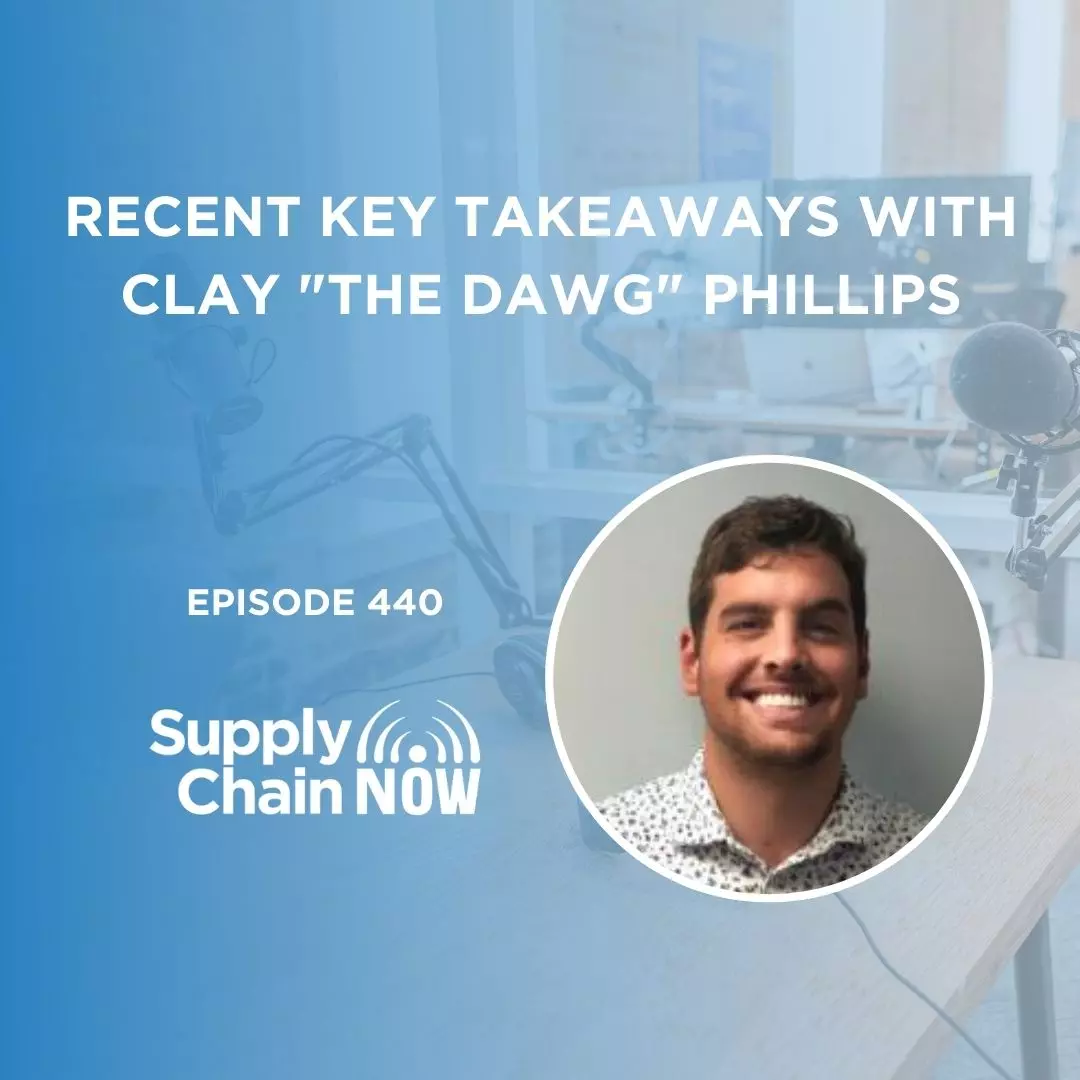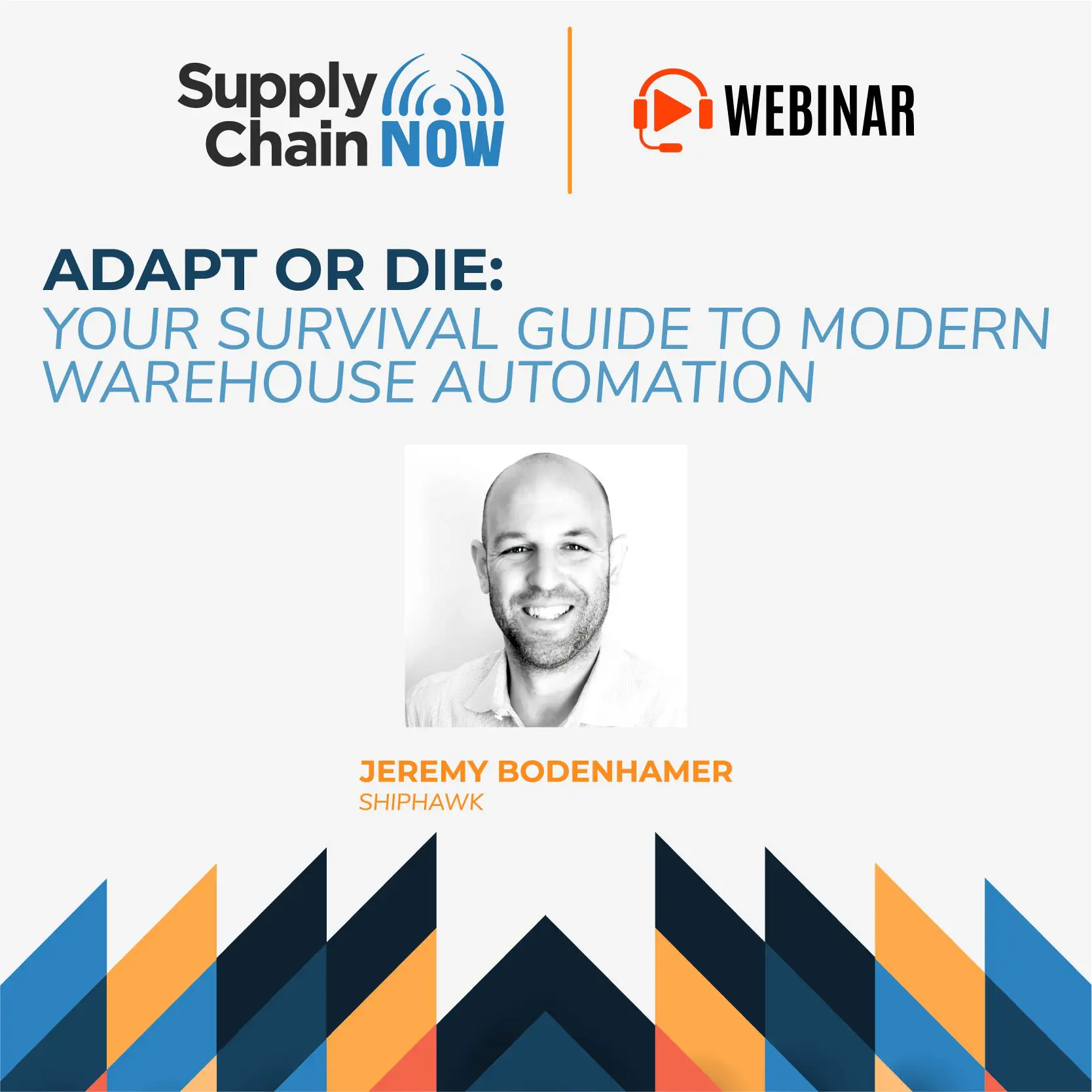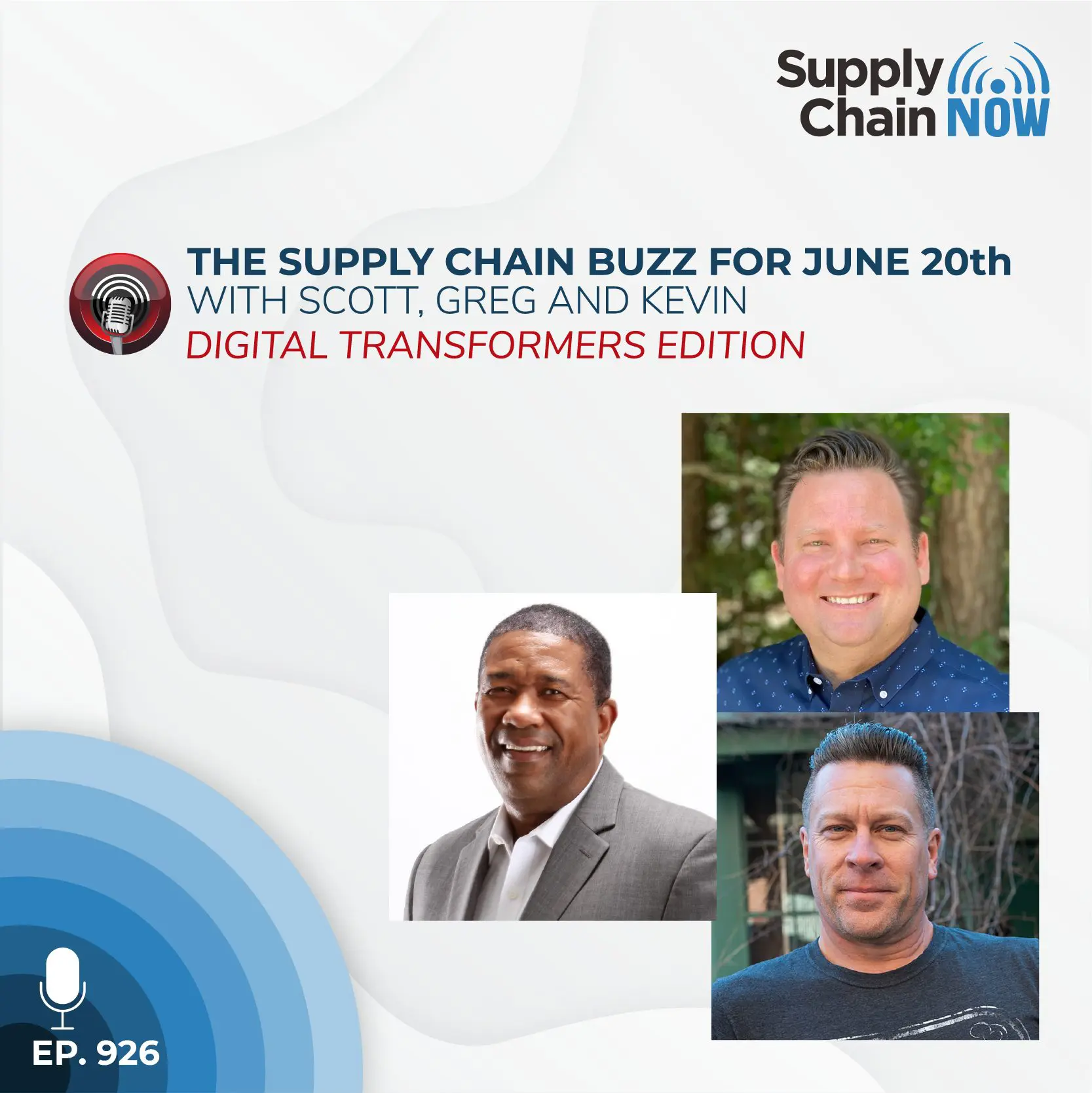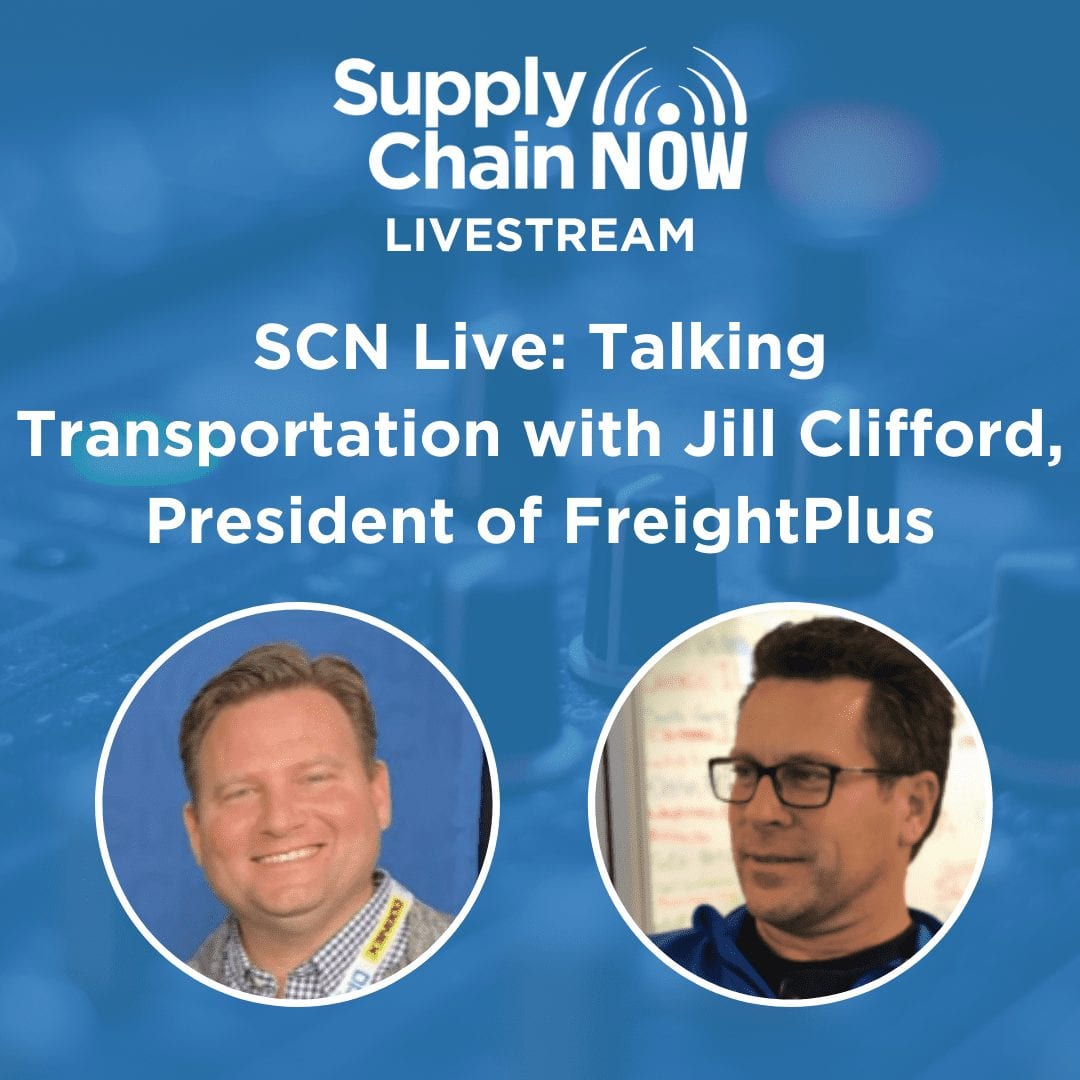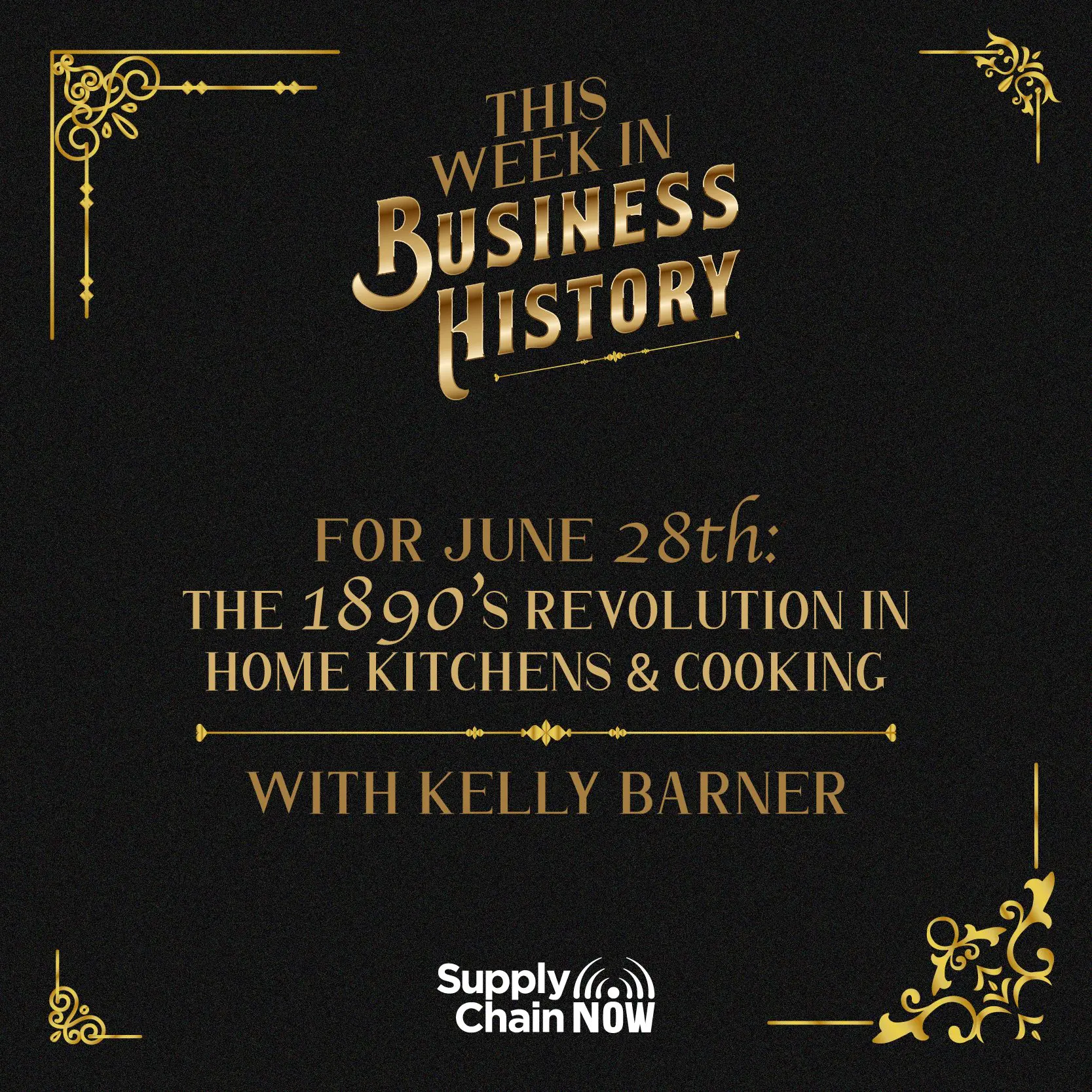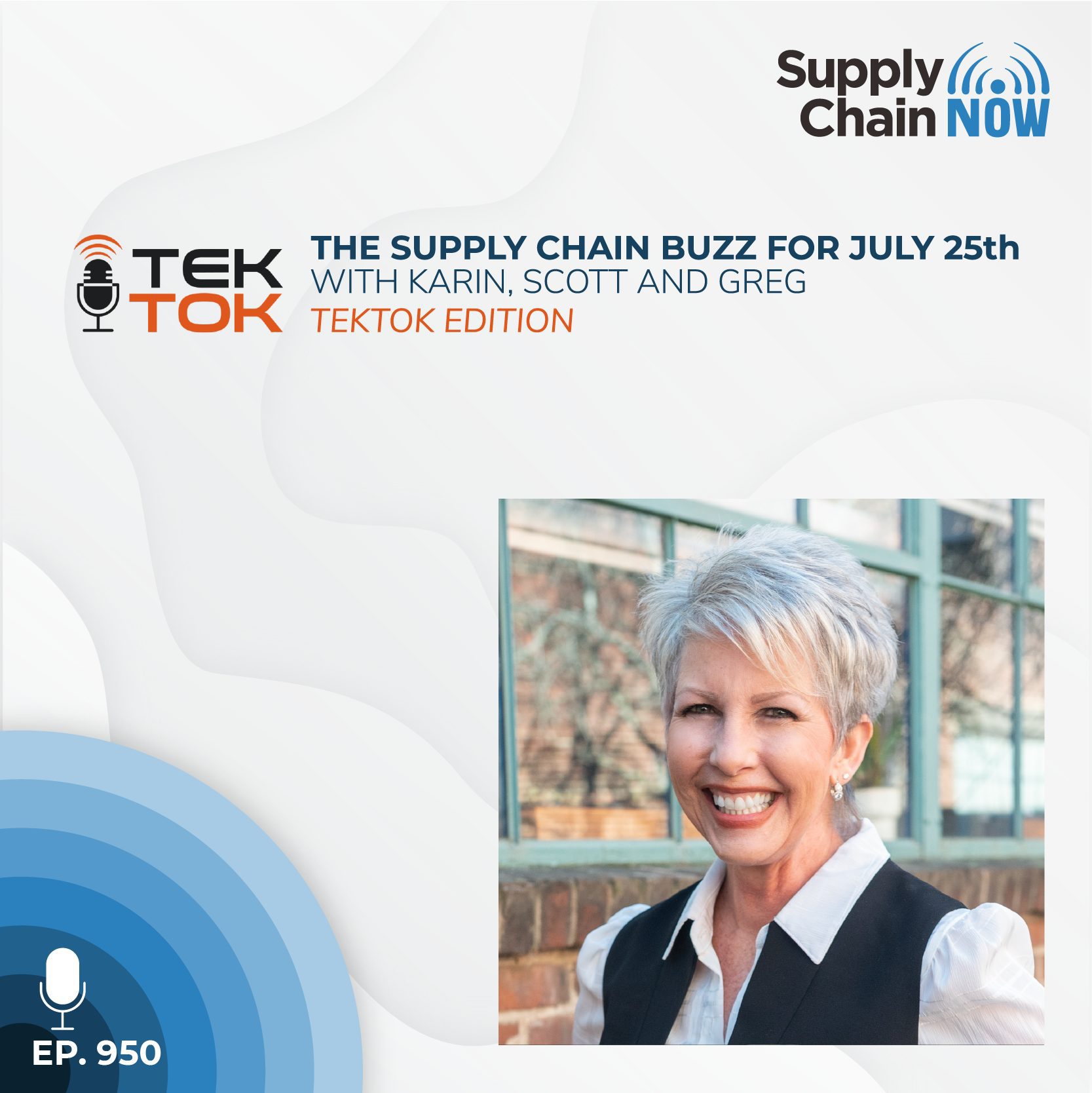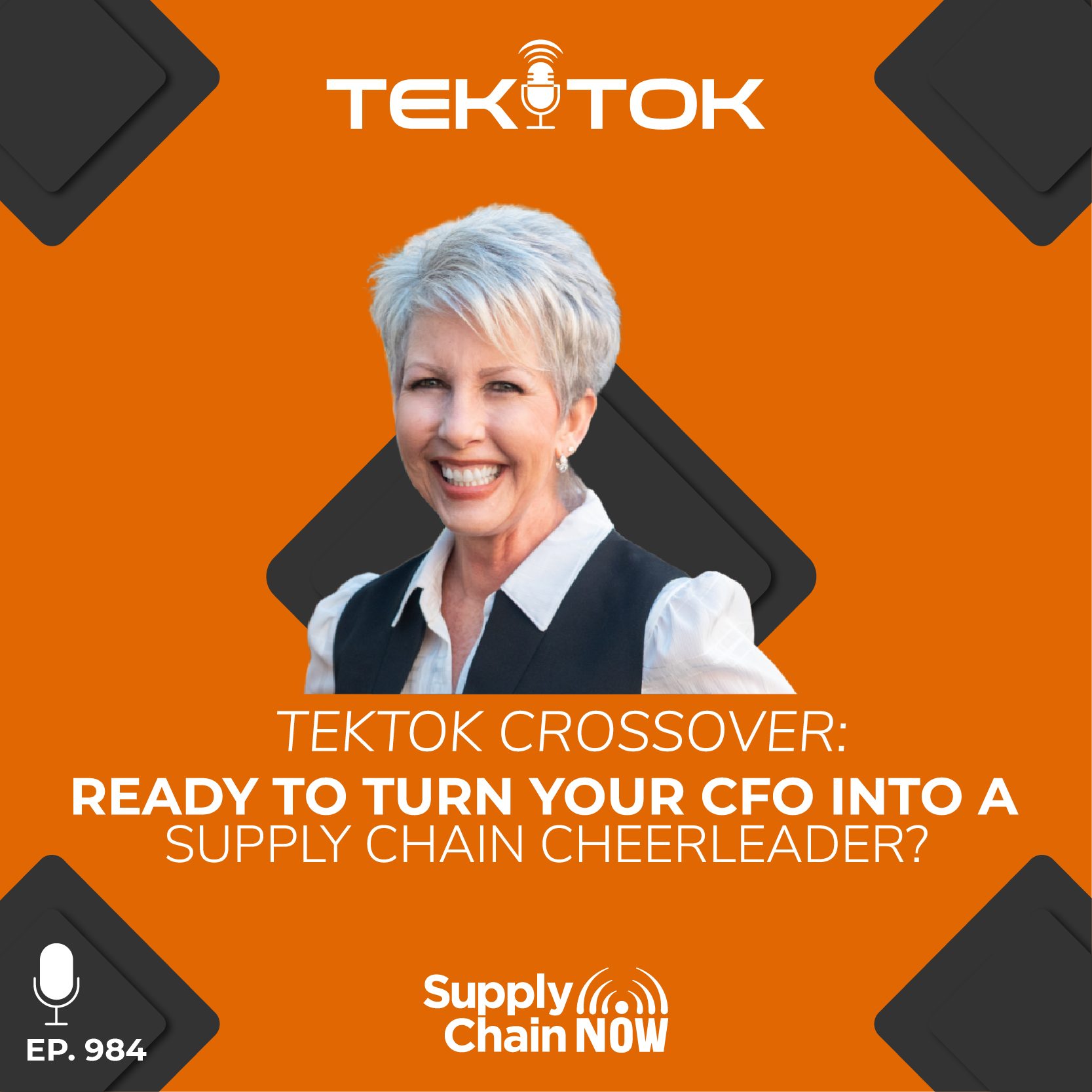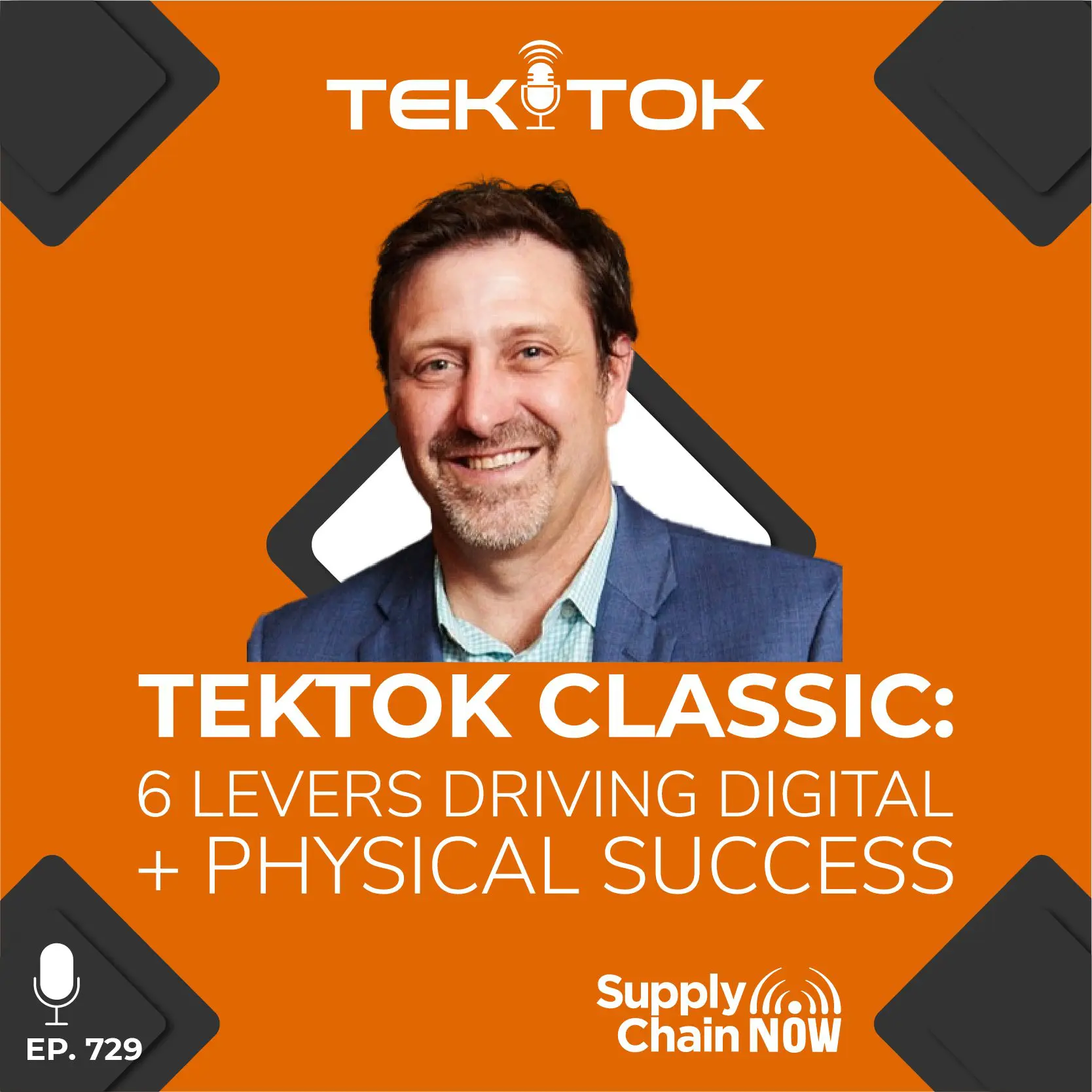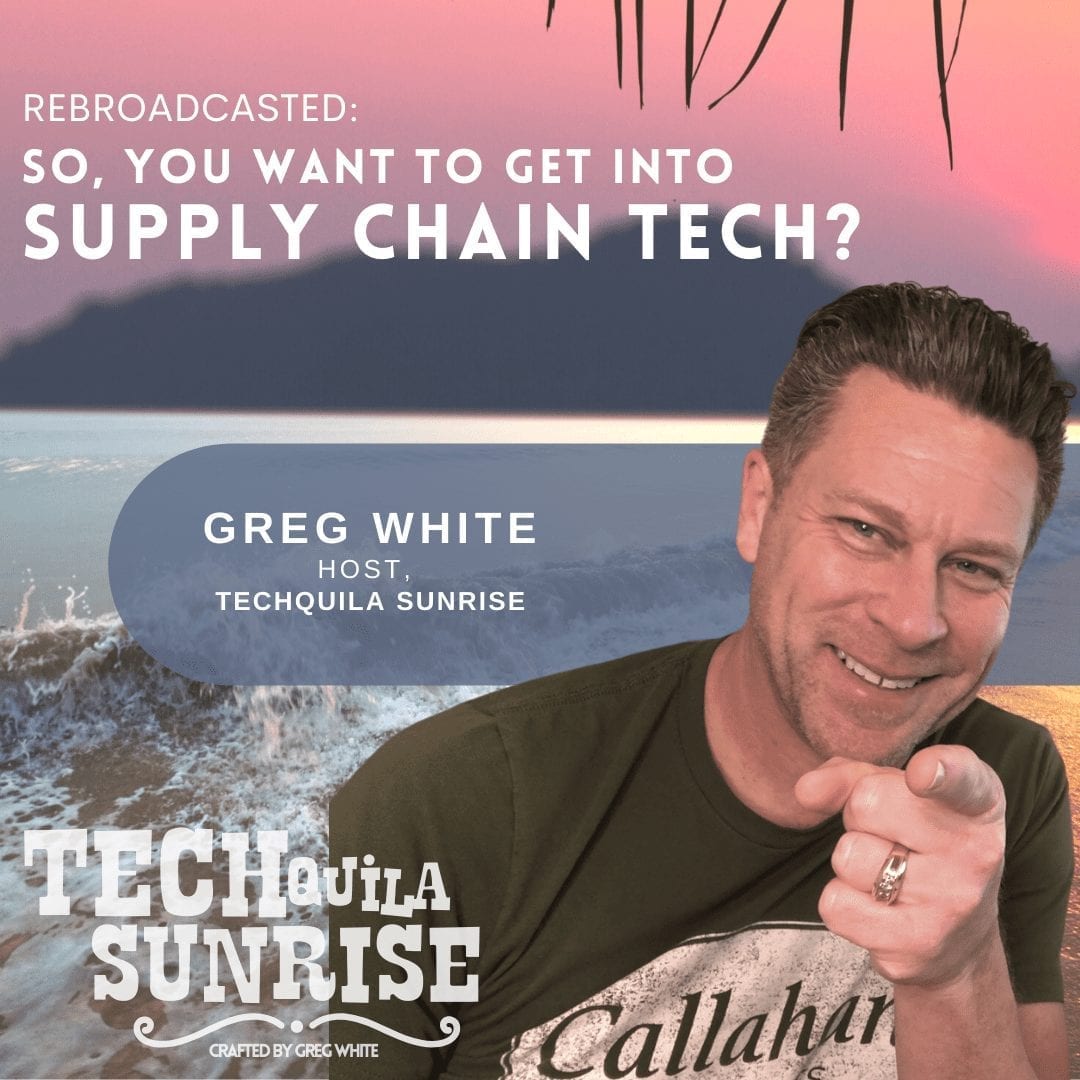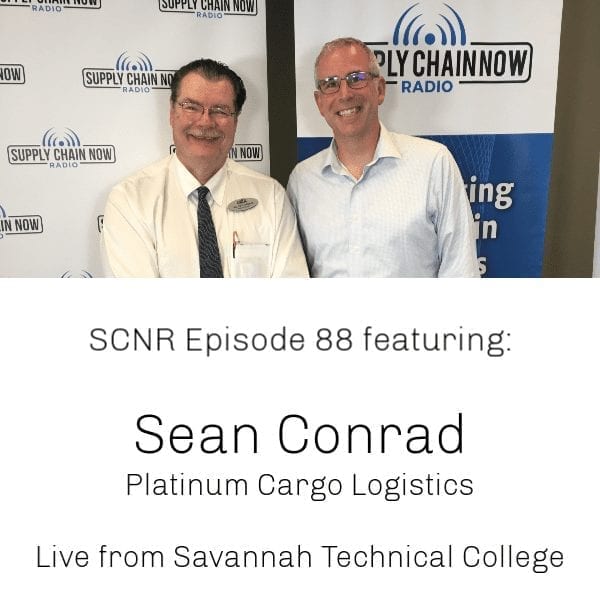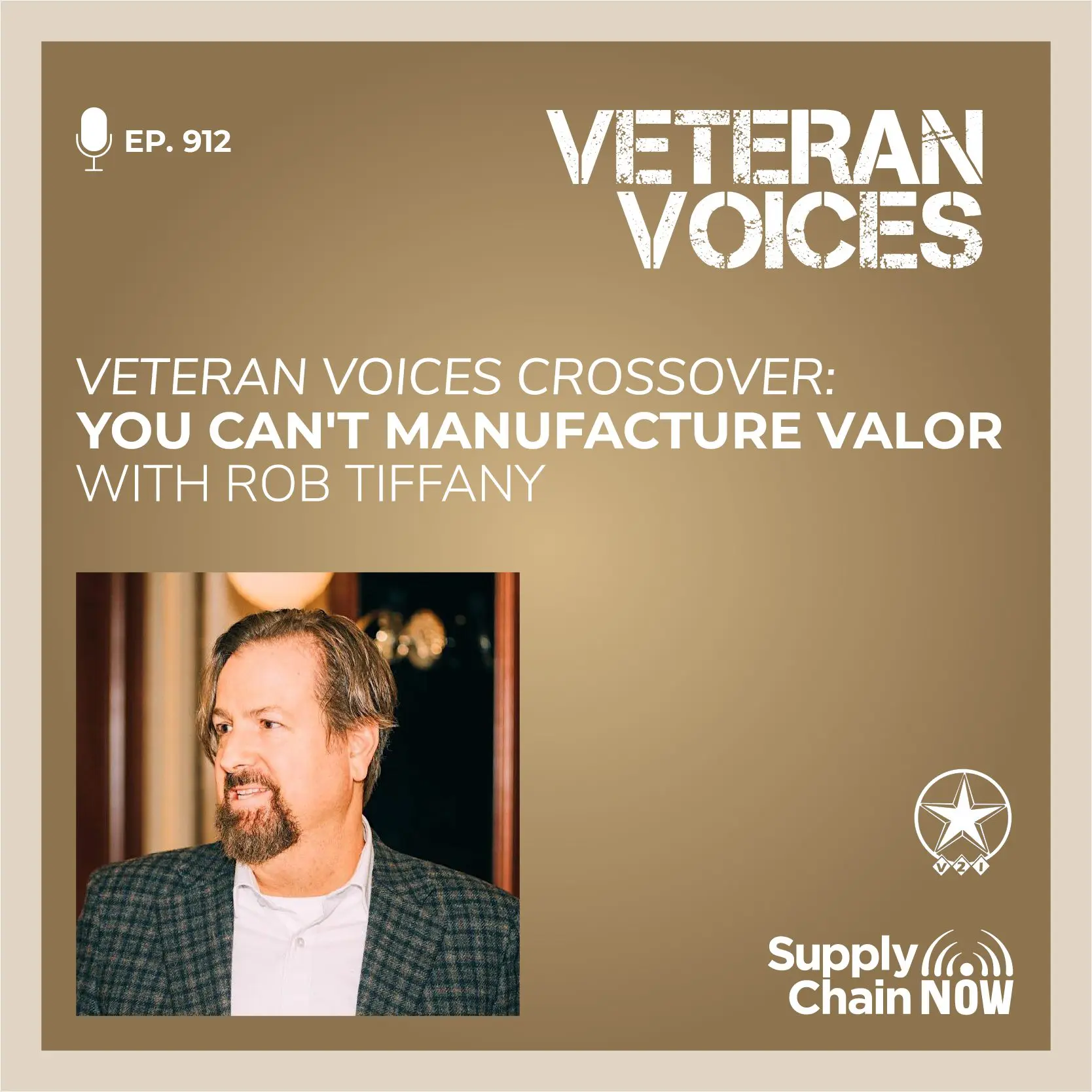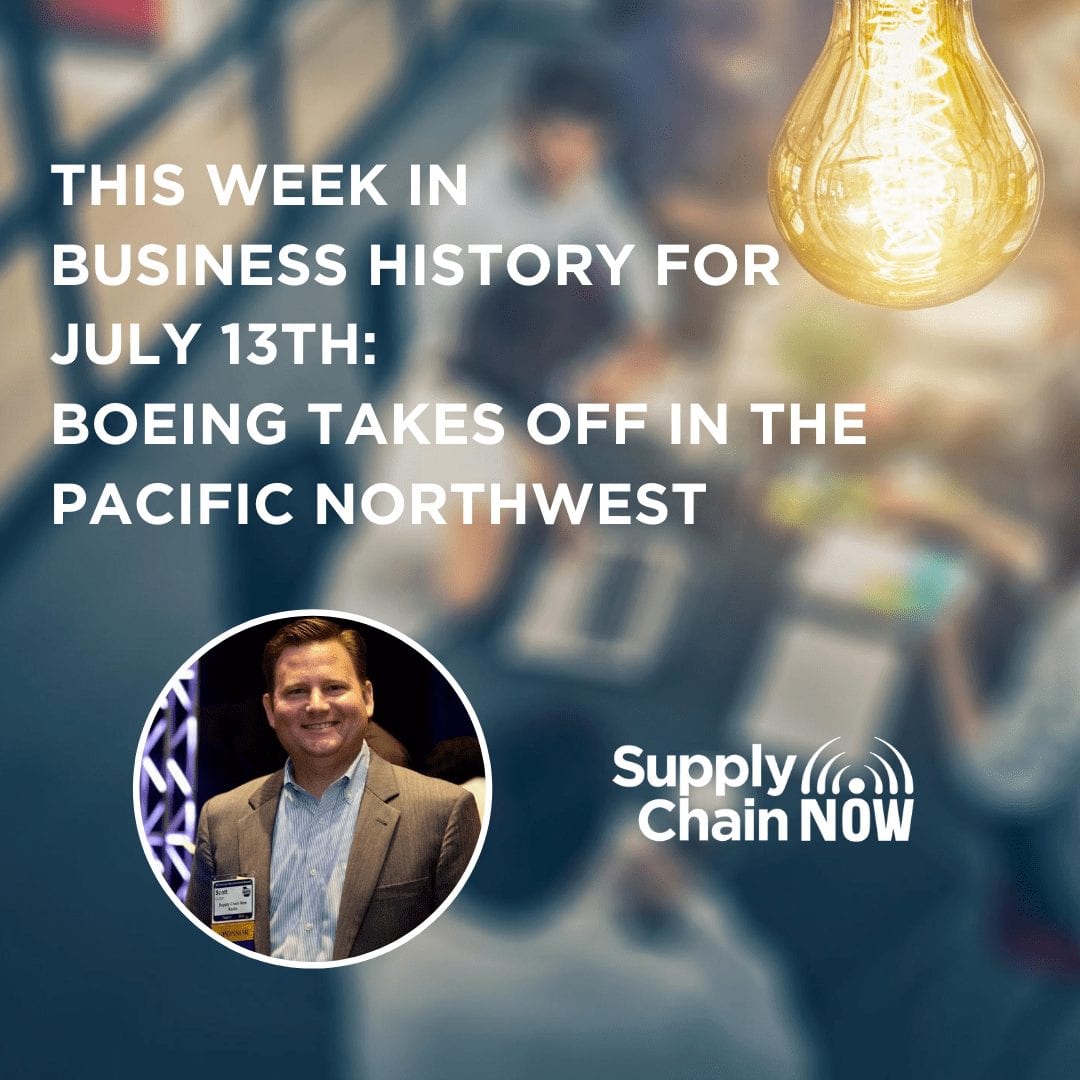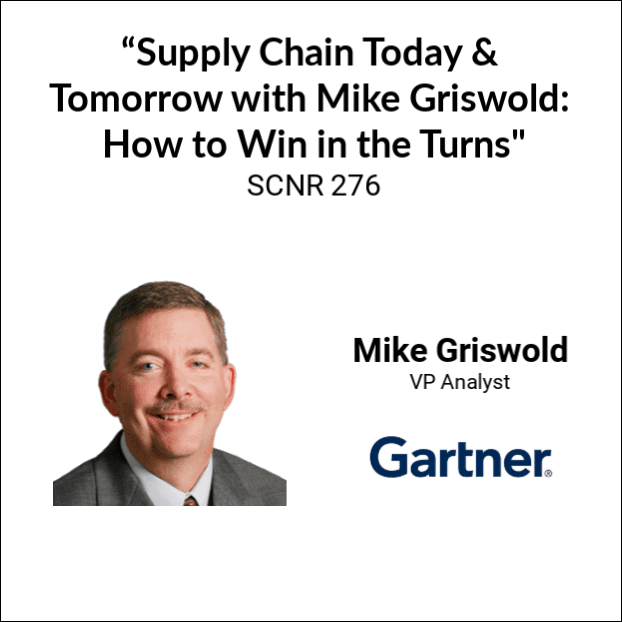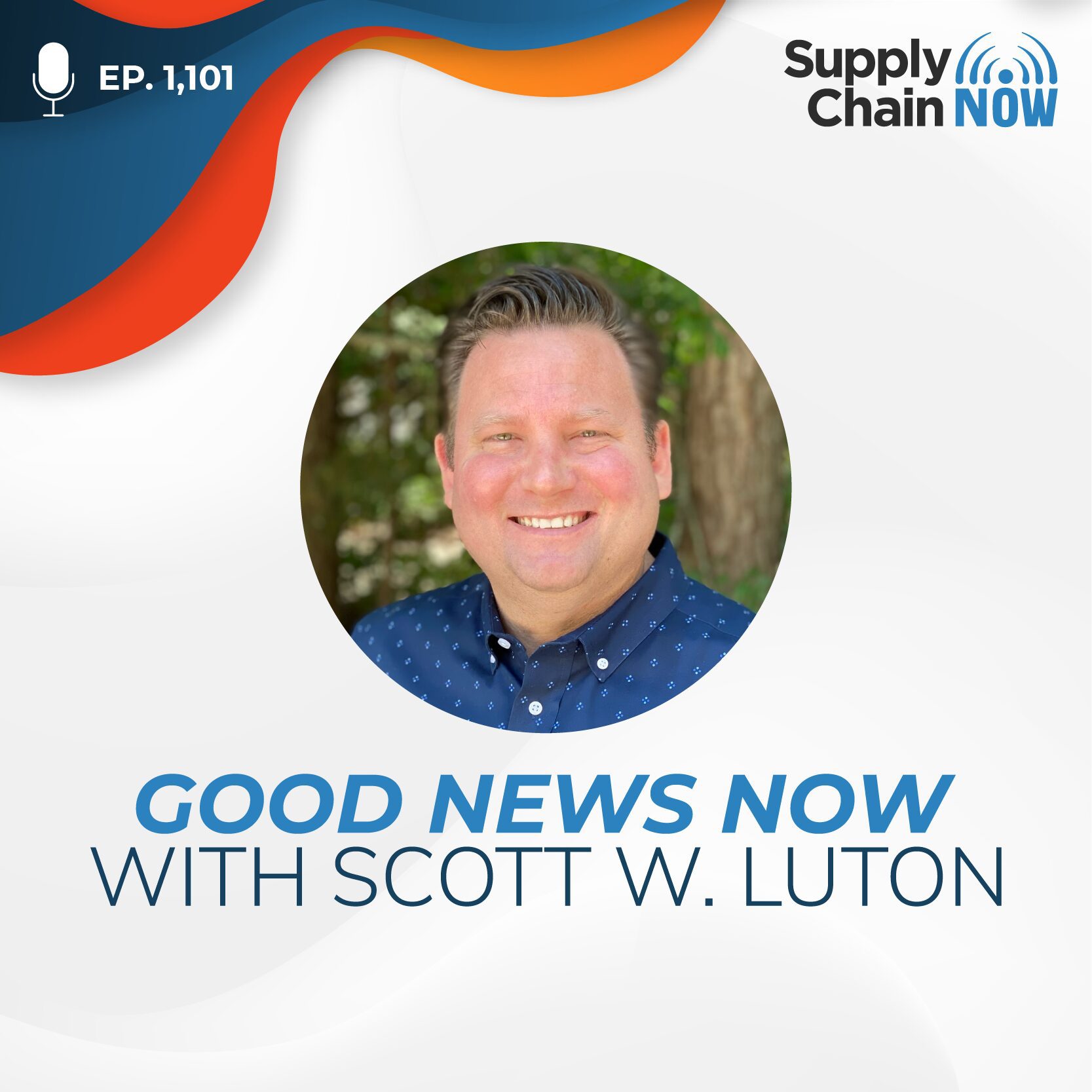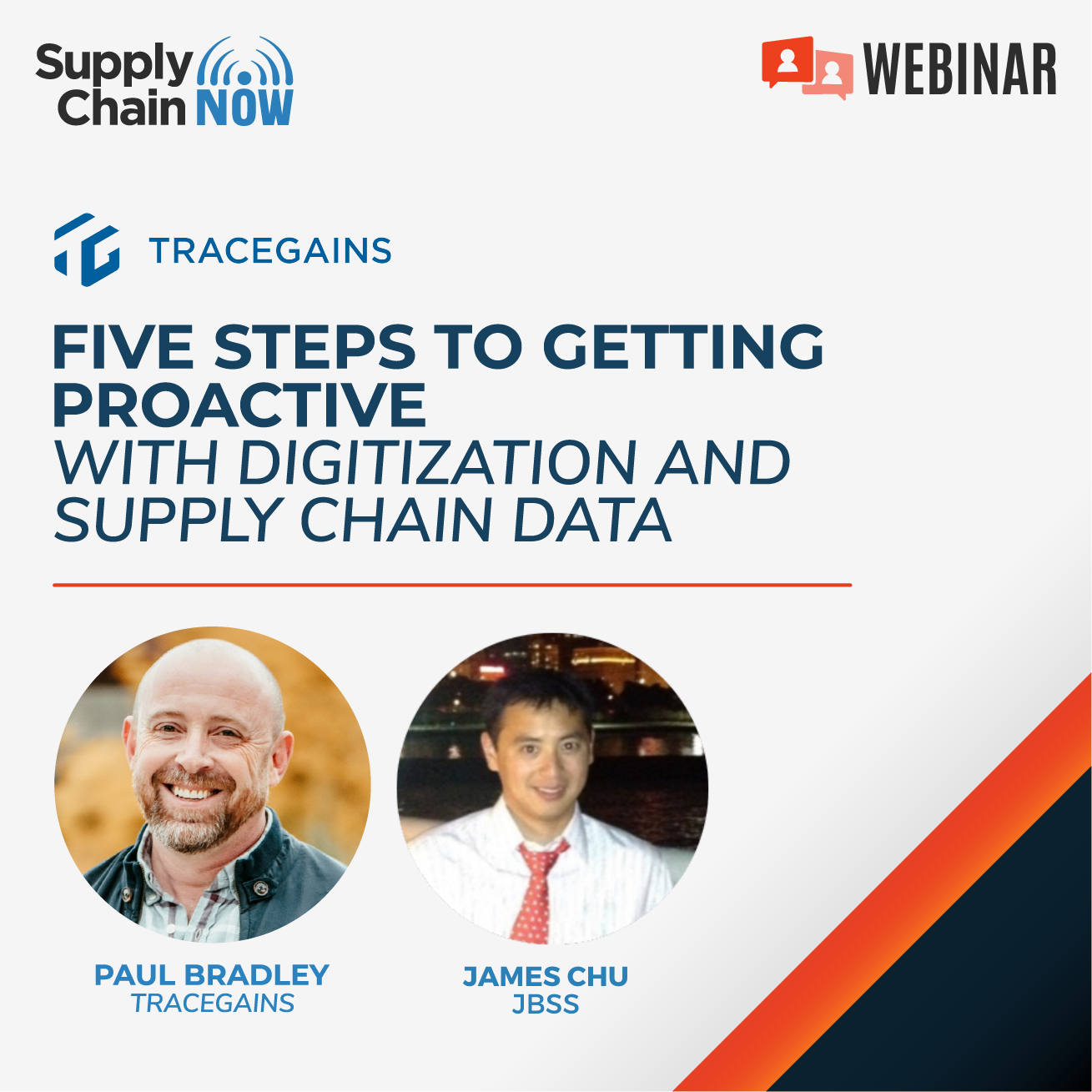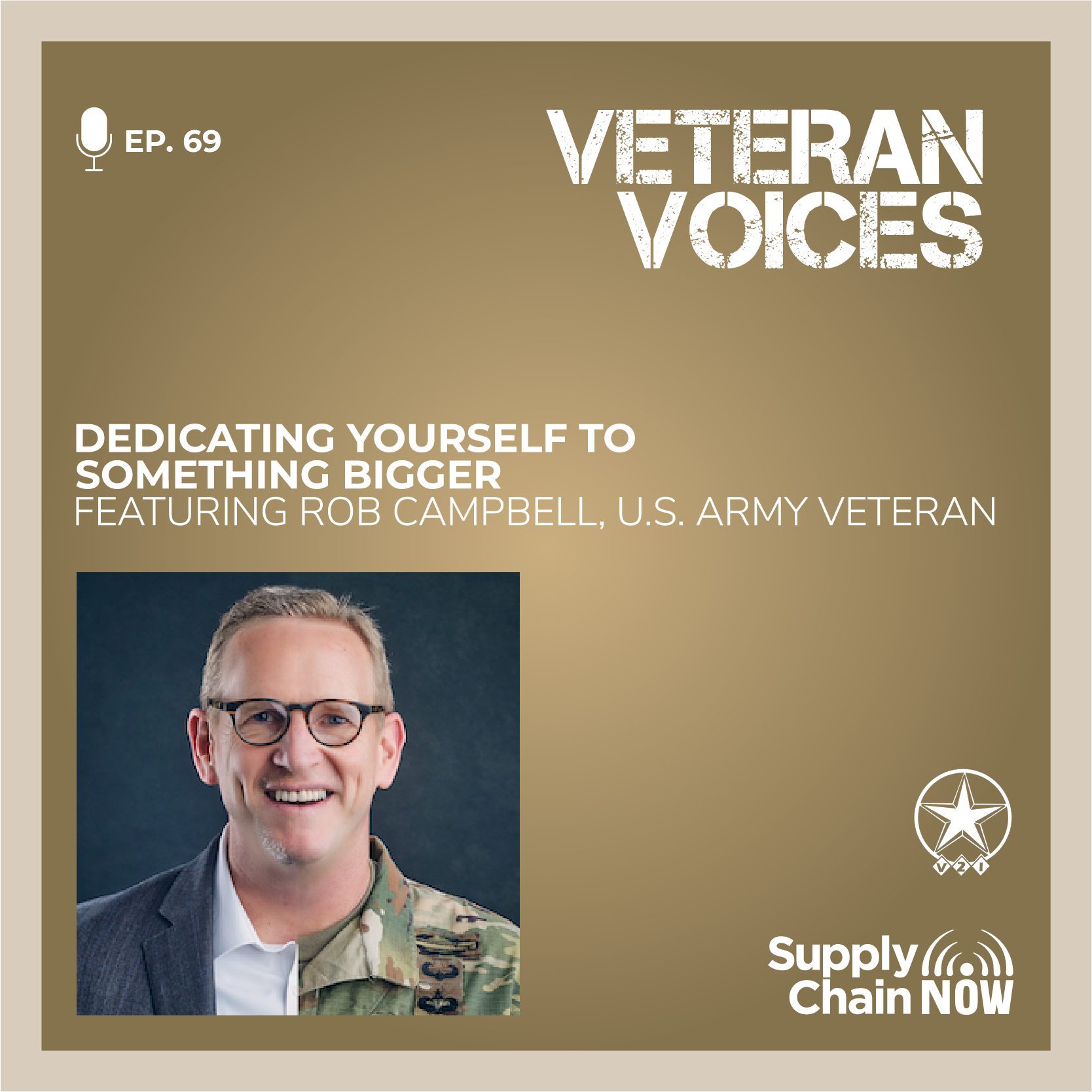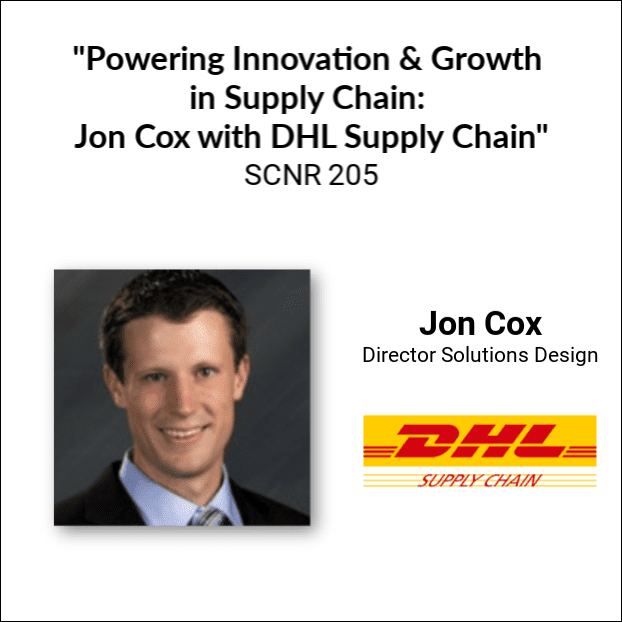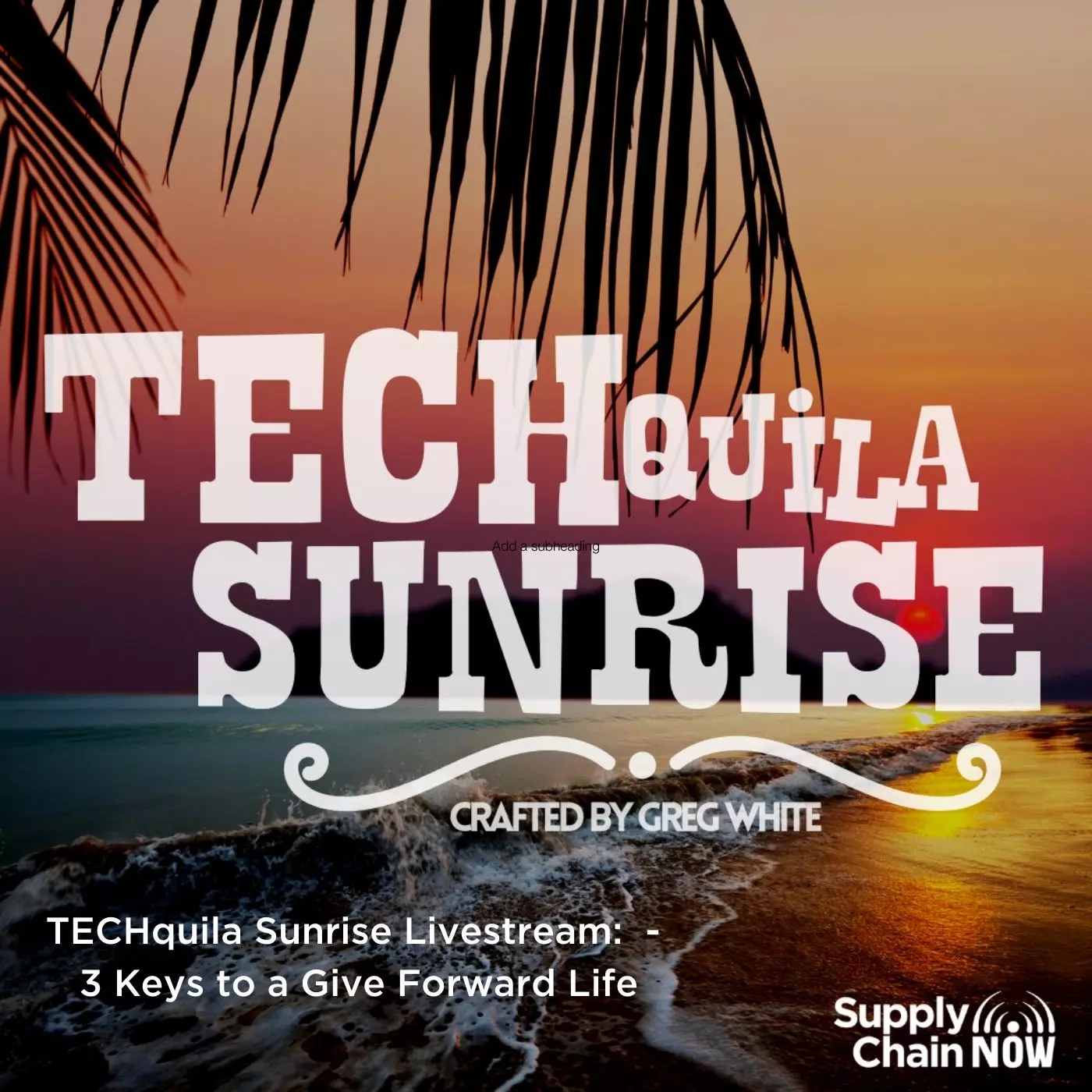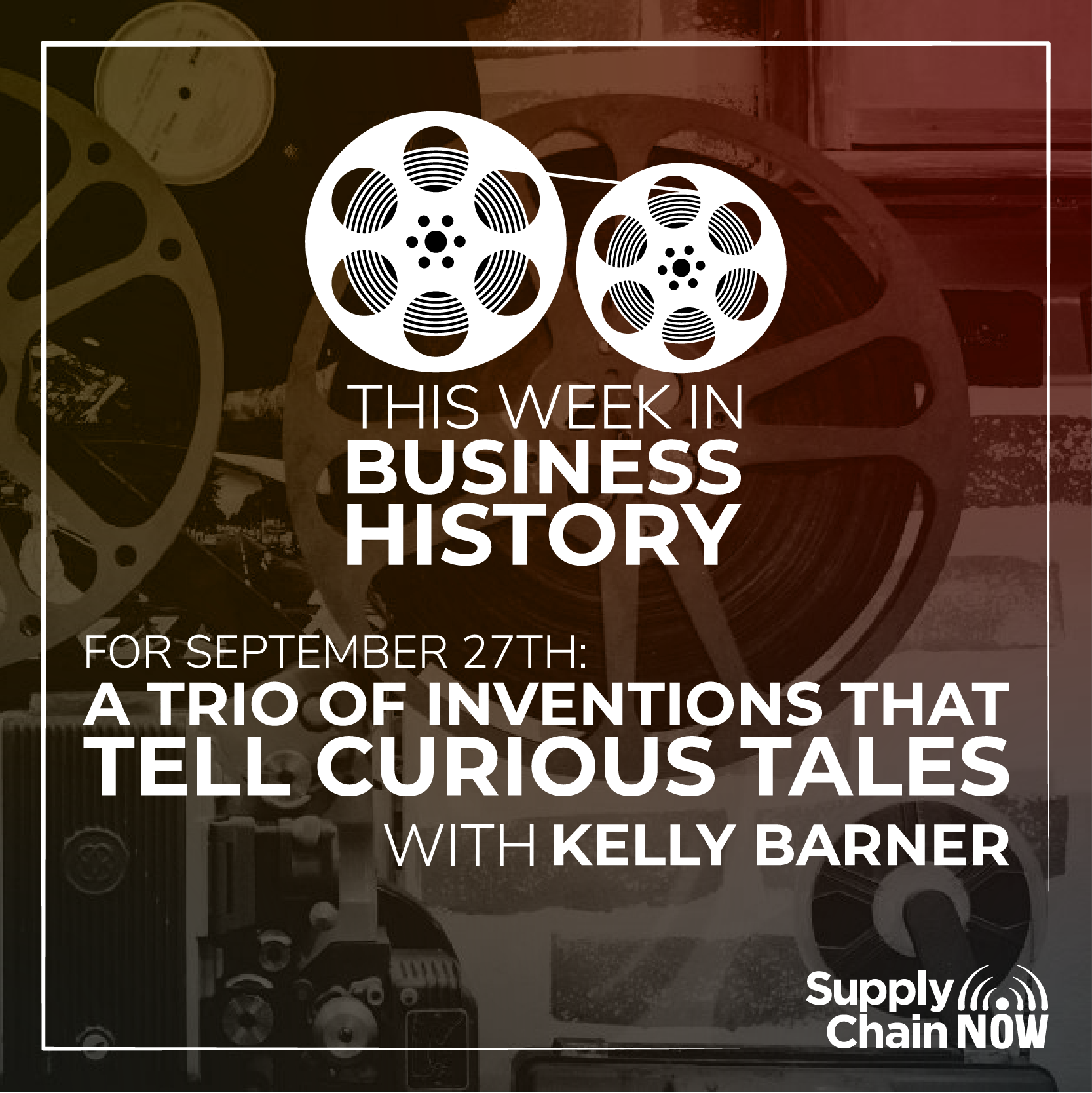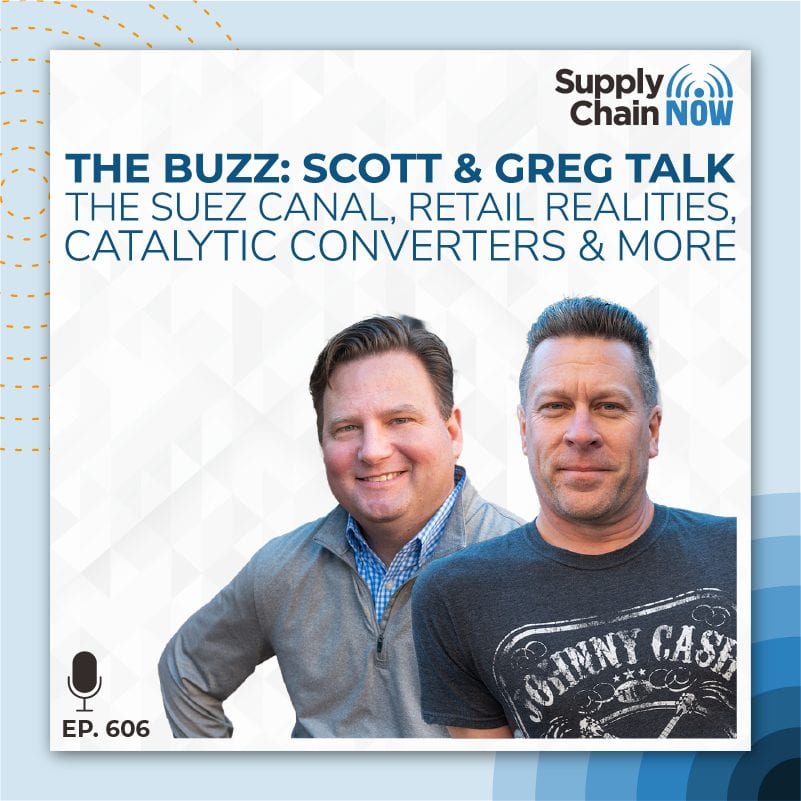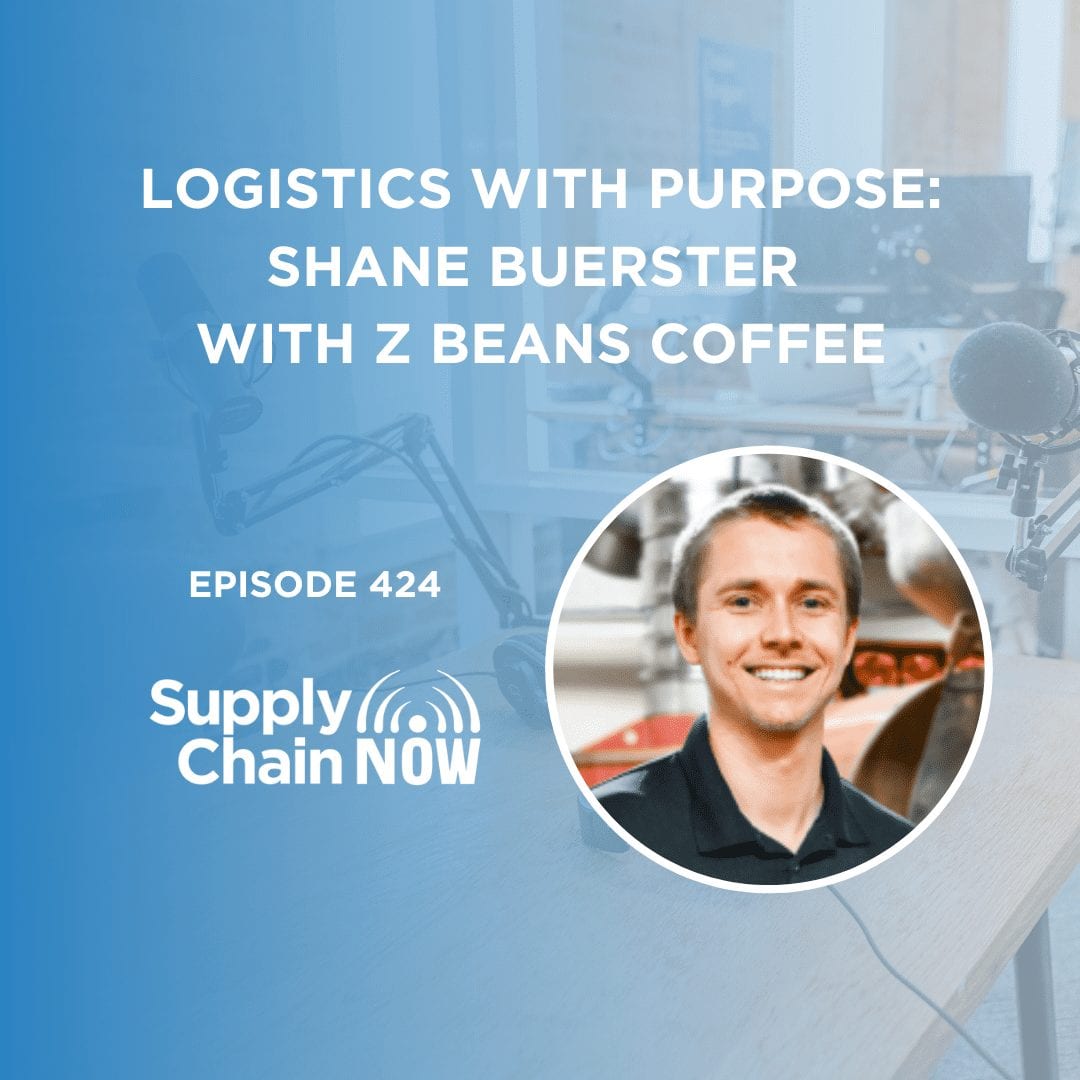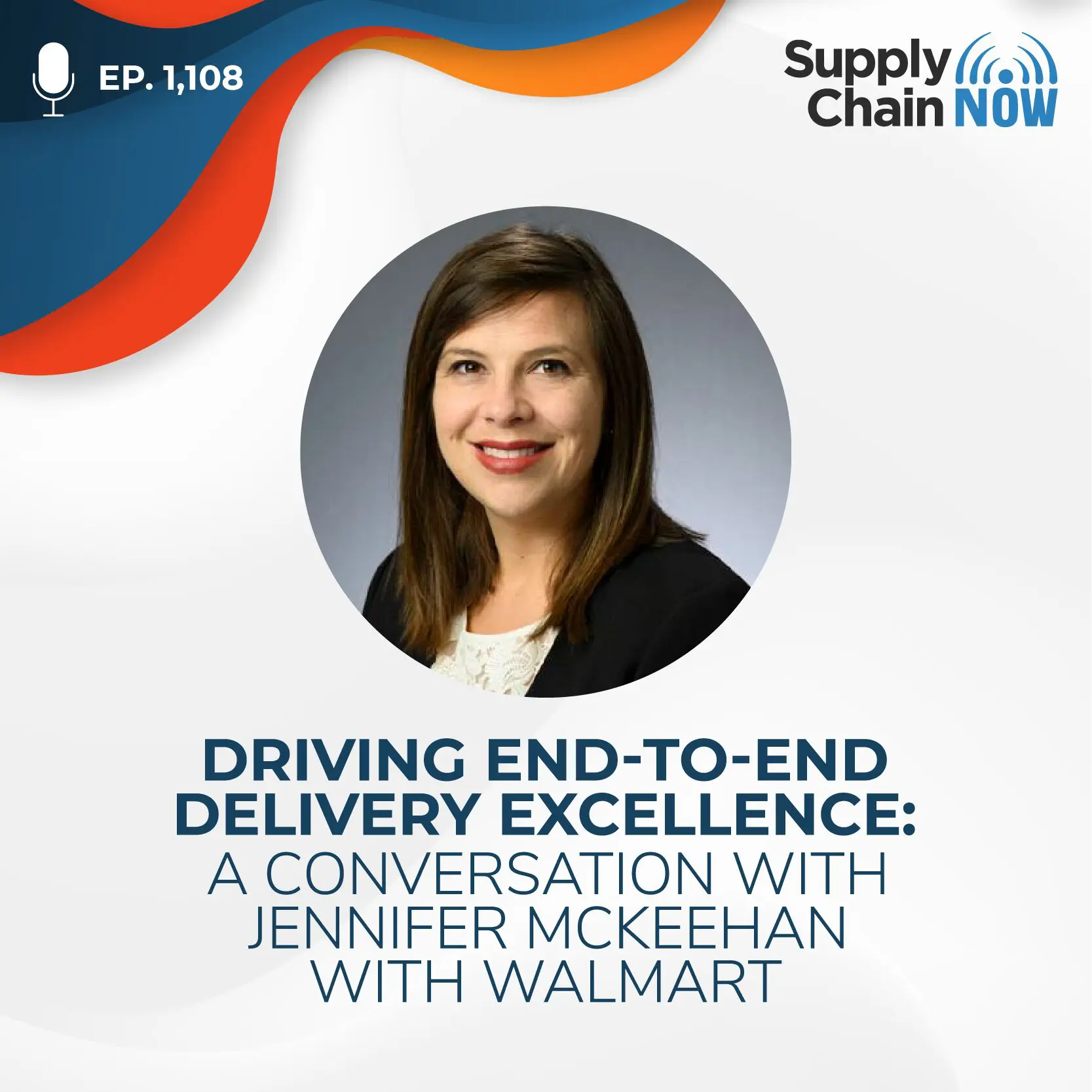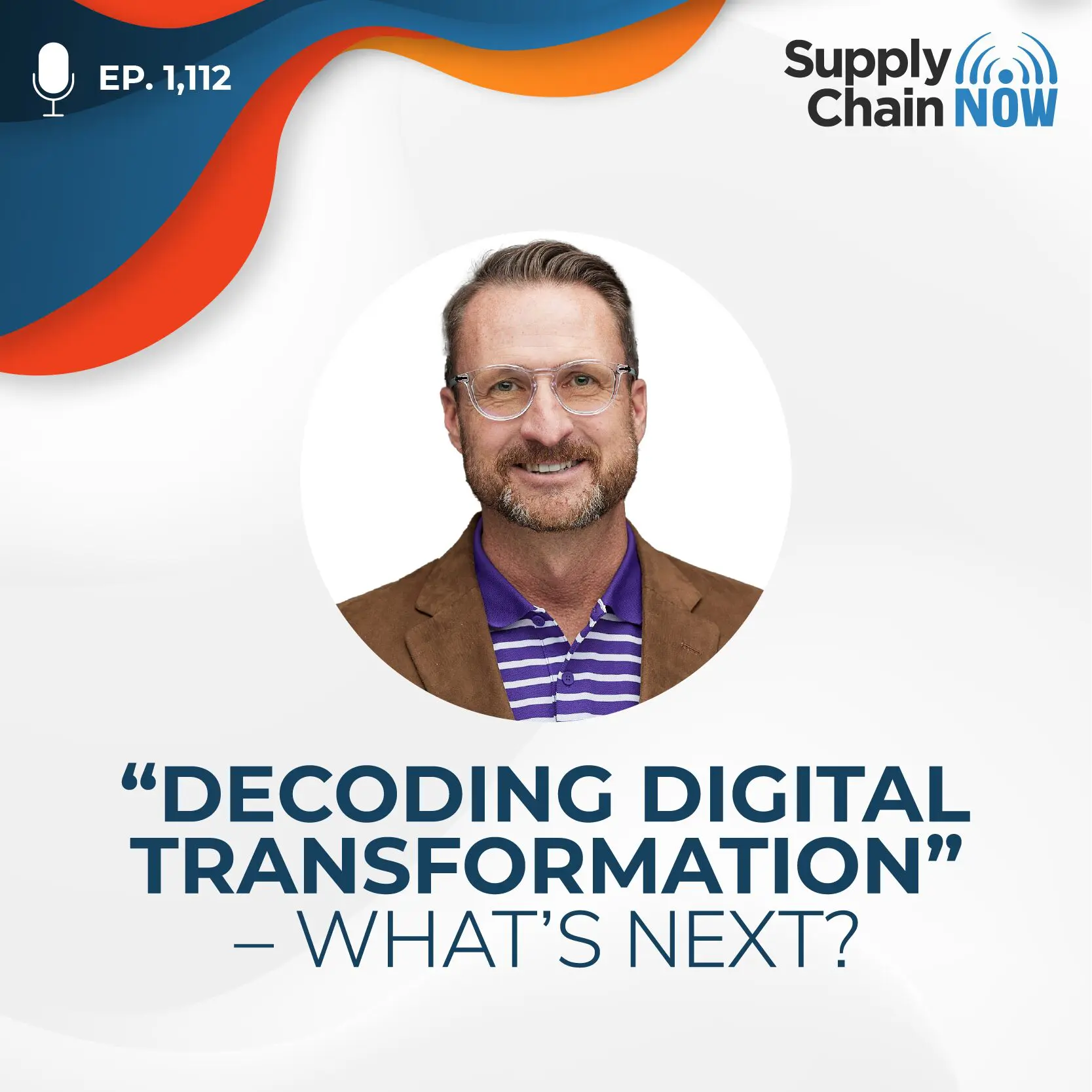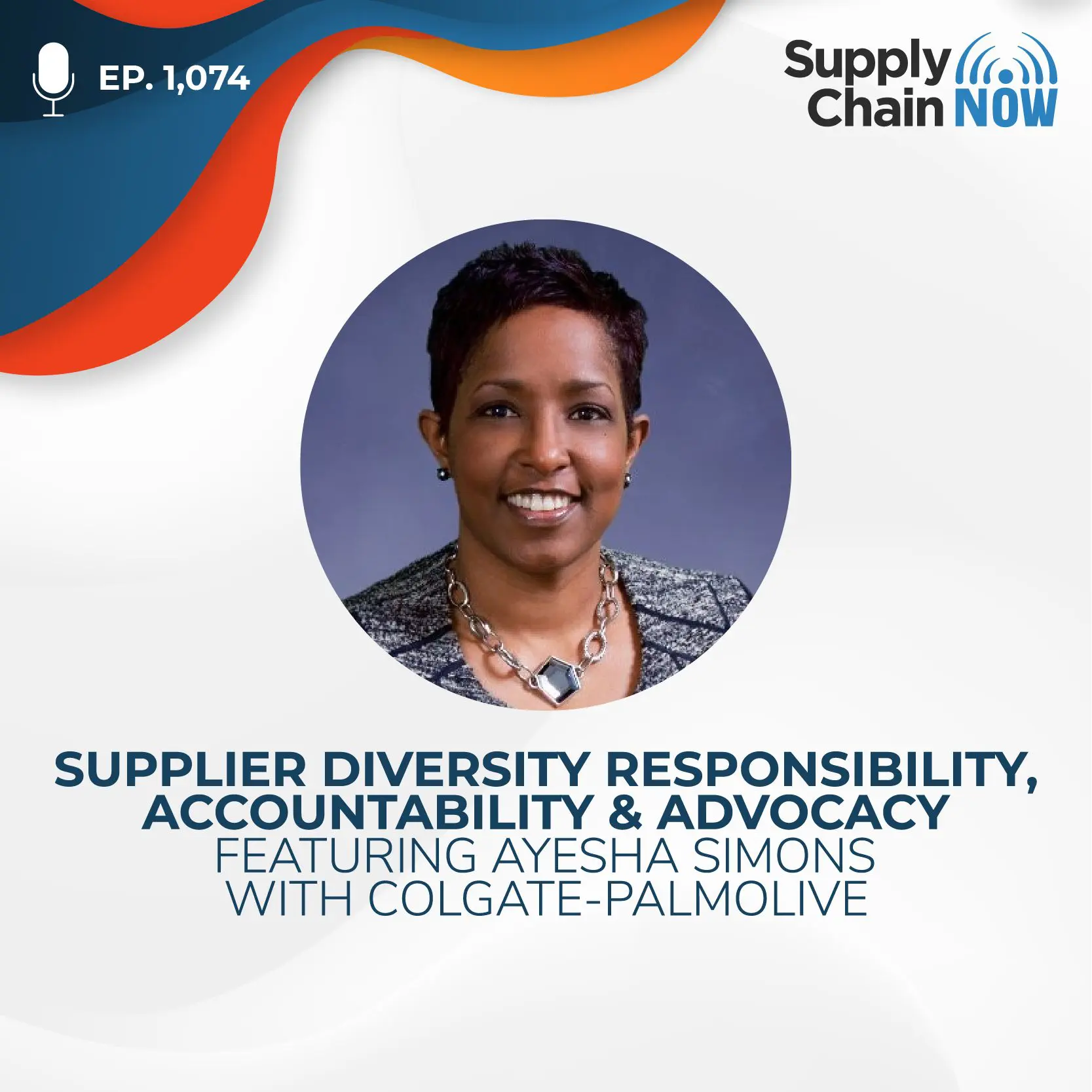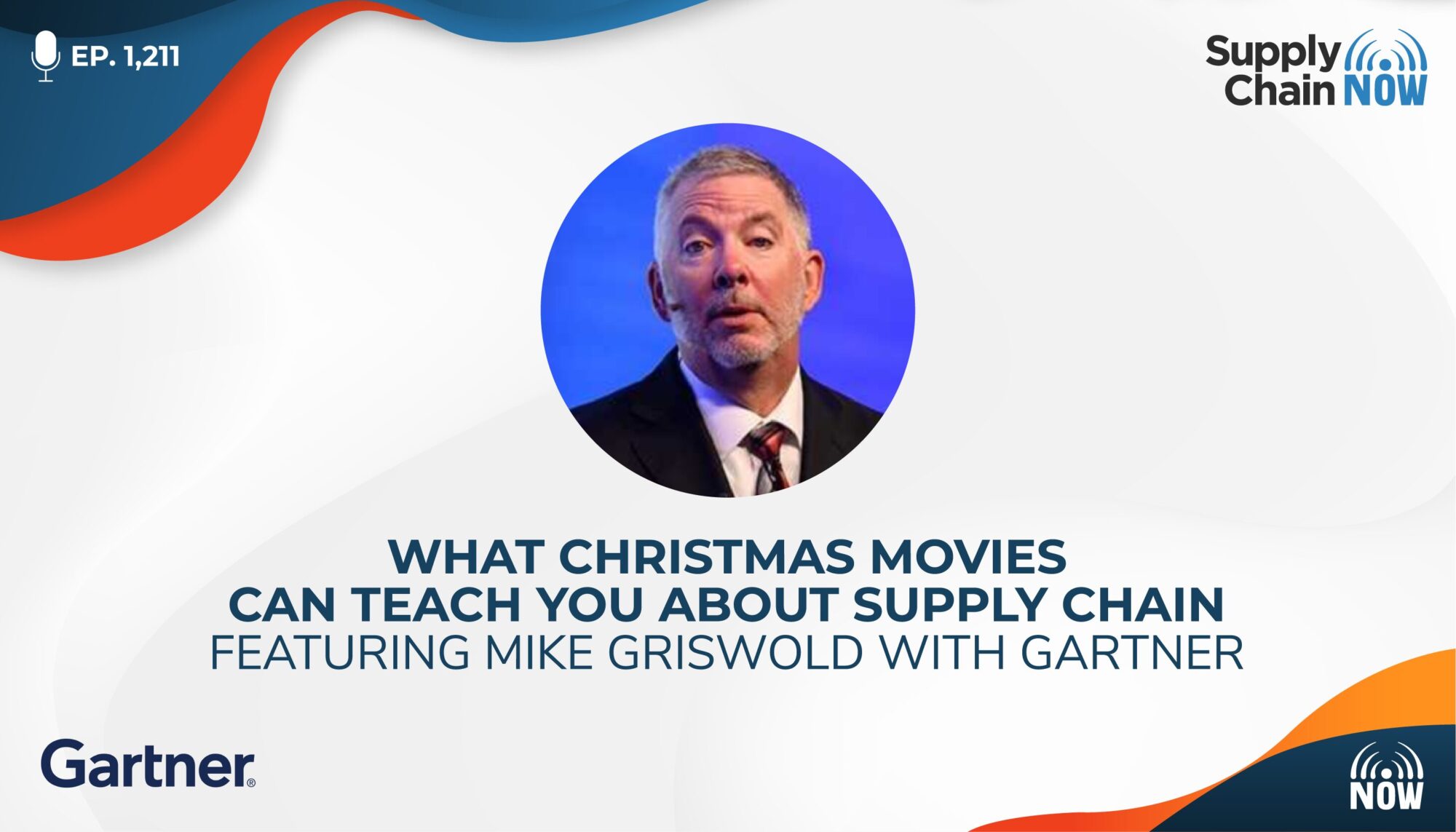
One of the reasons you see the perennials in our Supply Chain Top 25 is because they don't lose sight of the purpose of their supply chain. They're able to focus on what they're good at, and not get distracted.
-Mike Griswold
Episode Summary
In this final episode of 2023 in our popular “Supply Chain Today & Tomorrow featuring Mike Griswold with Gartner” series, Mike joins hosts Scott and Greg for a fun holiday-themed conversation! Listen in as Mike, Scott, and Greg dive into some classic holiday movies that intentionally or unintentionally offer up supply chain management lessons.
Episode Transcript
Intro/Outro (00:04):
Welcome to Supply Chain. Now the voice of global supply chain supply chain now focuses on the best in the business for our worldwide audience, the people, the technologies, the best practices, and today’s critical issues, the challenges and opportunities. Stay tuned to hear from Those Making Global Business Happen right here on supply chain now.
Scott Luton (00:33):
Hey. Hey. Good morning, good afternoon, good evening, Scott Lutton and Greg White with you here on Supply Chain. Now welcome to today’s live stream, Greg. How are we doing today?
Greg White (00:43):
Live? Very live. Yes. I can’t think of anywhere else I would rather be than right here right now.
Scott Luton (00:50):
That is high praise and it sounds like a Jesus Jones song from, I want to say 1990 maybe, right? Yeah. It’s
Greg White (01:00):
Also the Bills who the Chiefs play this weekend. It’s one of their big phrases. Where would you rather be than right here, right
Scott Luton (01:08):
Now? I’m always a lager when it comes to NFL references. I’m glad I’ve got you.
Greg White (01:14):
I didn’t even think about the Jesus Jones. Yeah,
Scott Luton (01:17):
Gen X. Gen X forever. Yeah, that’s
Greg White (01:20):
Right
Scott Luton (01:21):
Folks. We’re going to have a lot of fun today and we are glad you’re here with us. We continue our series, long-running series, goodness Supply chain today and tomorrow with Mike Griswold with Gartner. And like I mentioned, we’re going to have some fun lean into the holidays. We’re going to be talking about Greg classic holiday movies that whether you like it or not, they teach supply chain management principles, leadership lessons, and we didn’t even know it. Greg should be a fun conversation.
Greg White (01:48):
Anything that keeps us from talking about whether a certain movie is a holiday movie or not,
Scott Luton (01:54):
Right? That is right. And maybe I think we got
Greg White (01:57):
On that last year.
Scott Luton (01:59):
I think we spent about 17 minutes talking about that last year. I think you’re right, but always a great conversation with our dear friend, long time featured guest, Mike Griswold, stops by Greg. We get a lot of feedback around this series and this monthly show, right?
Greg White (02:13):
Longstanding but not long in the tooth. Yeah, I mean, we always learn something whenever Mike comes through town. Well, that’s right. I mean not technically through town. He’s still out in the boonies, but
Scott Luton (02:25):
He’s not quite like Sal popping in through the
Greg White (02:27):
Studio, let’s say that.
Scott Luton (02:29):
Right. Well folks, stick with us. It’s going to be a great conversation and I promise you, you’re going to learn a lot of great insights, one of the smartest folks in industry, no doubt. Alright, before we bring on Mike, I want to share a resource for y’all, and if you haven’t signed up yet, we encourage you to check it out, right? Do it. That’s right. Just do it. With that said, it’s our almost weekly newsletter where we offer up news. You may have missed points of view from across Global business and Greg, one of my favorite parts about this is it gives a rundown of the next week of live programming so folks can see something, they sign up for it and get a friendly reminder to join us. Pretty cool, isn’t it, Greg?
Greg White (03:14):
Yeah. When they can see my son-in-law playing Santa Claus on all the rank and bass station
Scott Luton (03:20):
Stories, right? That is right. I swear he looked
Greg White (03:23):
Just like that.
Scott Luton (03:26):
Well, and you never know what’s going to pop up. This week we touched on everything from economy to manufacturing to of core supply chain to litigation involving retailers getting sued because our chatbots are withholding tons of information. That was interesting, Greg. So y’all check it out. We’re dropping a link in the chat and as always, let it give us your feedback of maybe what you’d like to see. And with that said, that’d be valuable too, right, Greg?
Greg White (03:50):
Yeah, that would be great. Yeah, tell us what you want to see. That’s a great idea.
Scott Luton (03:55):
That is.
Greg White (03:56):
I mean, but you got to sign up first. If you don’t watch it, if you don’t see it, we don’t really care what you want to see,
Scott Luton (04:03):
Right? You got to at least, it’s kind of like that moment. I watched the office last night, commit. Yes, commit, commit, read the book, there will be a quiz. You got to read the newsletter, there will be a quiz. And of course we want your feedback. I
Greg White (04:16):
Like that.
Scott Luton (04:17):
Absolutely. Let’s see here. Josh goody with us from Seattle. The logistics for the last part of white Christmas is amazing, man.
Greg White (04:25):
I hope you didn’t just spoil. I hope that wasn’t a spoiler,
Scott Luton (04:28):
Josh. I hope not either.
Greg White (04:29):
We don’t know what Mike is going to select as the movies.
Scott Luton (04:34):
Well, Greg, to that point, let’s find out. Yeah, let’s get in here. Let’s get him in here. So no further ado. We want to bring in our featured guest, dear friend, Mike Griswold, vice President Analyst with Gartner. Hey. Hey Mike. How you doing? Hey,
Mike Griswold (04:46):
Great everyone. I’m not nearly as smart as Josh because that wasn’t on my list probably.
Scott Luton (04:50):
Oh,
Greg White (04:50):
Well maybe we’ll let Josh take a run at movie number four. Yeah,
Mike Griswold (04:53):
Exactly. And right now is actually a very good band zone.
Scott Luton (04:58):
Okay.
Greg White (04:58):
Yes, it is one of my favorites.
Scott Luton (05:01):
Okay, we’re going to add that to the list. And by the way, Mark’s offering up Happy holidays. Gino Pledger is in from north Alabama. And Josh, as we mentioned as Mike is challenging. Mike and Greg tell us what that lesson learned from White Christmas is all
Greg White (05:16):
About, but not yet. Let’s make that movie number four.
Scott Luton (05:18):
That’s right, that’s right. Alright, so Greg and Mike, Mike, great to have you back. I want to start with this. So as Greg and I know, and probably a lot of our listening audience except the newer members from around the globe will remember that you’re real passionate about coaching and basketball in general and especially women’s basketball, big college basketball fan this season, Greg and Mike, as I was kind of checking out the poll, it looks like South Carolina continues a strong program. UCLA, NC State are kind of all the top, I think all undefeated so far. But I want to ask this to you, I’m going to ask both of y’all this. What is one player, Mike or team that will always one of your faves and why?
Mike Griswold (06:00):
So I’m actually going to take some poetic license and I’m going to squeeze in too. So I’m going to go back in the way back machine. There was a guy, I’m big on the men’s side, I’m a big fan of the Duke program. There was a gardening, Tommy Ameer who played for Coach K, probably one of the best point guard and point guard defenders that I’ve seen in quite some time. He’s currently the coach, the men’s coach at Harvard. So if you’re interested in watching someone that really understood and understands the game and plays the position both offensively and defensively, Tommy Ameer is one. And then in the current environment on the women’s side, there’s only a handful of people that I would legitimately pay money to go see. And one of them is Caitlin Clark, Iowa plays tonight against Iowa State. She is probably not probably, she is the best women’s player that I’ve ever seen in person. My wife and I were in Seattle last year at the women’s regional when she had triple double with 40 points, a 12 or 13 rebounds tennis assist. So she is definitely the most exciting player in the women’s game right now in terms of what she does offensively, those would be two.
Scott Luton (07:16):
Okay. Tommy Emer and Caitlyn Clark. Those are good ones. Greg, how about you?
Greg White (07:22):
Mine’s not nearly as creative. I got to see him a lot when we lived in Detroit and I got to see him a lot when I was working in Chicago. Michael Jordan is the greatest basketball player of all time. Unquestionably. They still played defense in the NBA back there. Well arguably defense, but much more defense than now. But I’d have to agree with Caitlin Clark. She’s offensive in so many ways, just like you should be in basketball. Basketball is a smack talking game and she has got game talking smacked.
Scott Luton (07:50):
Yes, yes.
Mike Griswold (07:52):
You have to be able to back it up. She certainly can do that. Agree us back it up. You’re right. And I couldn’t agree more on the Michael Jordan observation I was at. If anyone gets a chance to go to the Nike flagship store in Chicago, there’s a list of all of Jordan’s accomplishments, which basically takes up an entire wall. But the one that strikes me that people may or may not know is the number of times he was defensive player of the year. I mean, he has had such a well-rounded game that and most of the highlights you ever see of Jordan or Dunking or Clut shots, but I think it was five time defensive player of the year for a person of his ability. To your point Greg agree completely. Not sure how much defense they ever played, but they definitely played more than they do now.
Scott Luton (08:46):
Yes. Alright, so I’m going to share one quick thought and then we’re going to keep on driving. I read this morning that I’m going to say legendary college basketball, cliff Ellis, who’s one of the top, I think he ranks number 11 or maybe 10th all time in wins. He’s retiring. And so I’m going to reverse my question and one of my least favorite players of all time is Tate George with Yukon, who reportedly hit a last second shot. I think it was 1991. Eldon Campbell was on that Clemson team. Dale Davis was on that Clemson team. I freezed my VCR. The ball was still in Tate George’s hand, but the referees let it go. And that was one of Clemson’s best teams ever and lost at the last second against Yukon. So I know I’m probably one of three people that remembered that. But anyway, it Tate George is now, but Cliff Ellis, what an incredible career and congrats to you. Yeah, great
Mike Griswold (09:37):
Coach. And in today’s environment they could have replayed that, right? And we would know definitively. But that having said that, that was a really good Connecticut team.
Scott Luton (09:48):
Yes, it was. Greg,
Greg White (09:50):
Explain to people what A VCR is. Yes. And it brings to mind probably one of the most hated players in NCAA history. Christian Laettner from Duke and hard earned and well-deserved. So yes,
Scott Luton (10:08):
Right. That is right. Well said. And Josh may be a Huskies fan. We’ll see. I think they’re undefeated on the men’s side I believe. And Mark Preston talking about his Georgia Tech yellow jackets who won over Duke this week
Greg White (10:21):
Telling that, telling you I went and watched them play Mississippi State. They are for real. They stomped the guts out of a top 20 team. I was very impressed by that.
Scott Luton (10:31):
I got to put ’em on my radar. A lot of good stuff, man. We got some good basketball passion going on the front of this episode. So that tells me we got to get to work and I’m really looking forward
Greg White (10:41):
Basketball movies instead of holiday.
Scott Luton (10:44):
No kidding, Greg. Hindsight, right? 2020. But it is December 6th about y’all. But I’m really looking forward to finding some way to get into the holiday spirit earlier. I like this phrase ptk every day. It starts tomorrow. That’s right,
Greg White (10:58):
That’s right. Hanukkah starts tomorrow. So
Scott Luton (11:01):
Well the holidays be here. That’s right. That is right. So to that point Greg and Mike, what we want to walk through is we’re going to take a, so Mike mentioned the way back machine that reminded me of George Michael Sports Machine back in the day. I think he had a way back machine on that program that ran forever. So we’re going to go back in the way back machine, we’re going to pick three movies, holiday movies that teach us supply chain management, leadership, lessons learned, you name it, Mike’s going to share three, we’re going to get Greg’s take, we’re going to get y’all’s take. So y’all be thinking about movies that you can find a business lesson then. So Mike, with all of that said, let’s start with your first movie.
Mike Griswold (11:41):
Yeah. We’re going to go from semi-serious to funny. So we’ll get the semi-serious out of the way. And that’s actually the Charlie Brown Christmas special. And the reason that is, as I reflect on that, the main message is what’s the true meeting of Christmas? Right? At the end of the day you’ve got that scene with Linus on stage telling Charlie Brown, this is what the true meeting of Christmas is. And I think Charlie Brown’s perspective early was getting caught up in all the glitz and glamor of kind of a manufactured Christmas. And I think it’s easy for us in the supply chain to fall trapped to what are the bright shiny objects? What are the new kind of things that are being thrown at us or the new things that we’re being asked to explore. And it’s very easy for us to lose sight of what is the true purpose of our supply chain, why do we as an organization have a supply chain?
(12:44):
And if I think about our research around supply chain segmentation and we think about supply chains trying to manage that balance between speed, service and cost, it’s really around what’s the core mission of our supply chain? Why do we have one and how do we not get distracted by all the things that can distract us? Whether it’s technology, whether it’s the problem of the day, whether it’s something larger, maybe it’s whatever it could be. It’s how really good organizations recognize why they have a supply chain and they stay really focused on those elements. I think of our supply chain, top 25 companies, one of the reasons you see the perennials in there, the masters, the companies that are in the top seven or eight are pretty consistently there. It’s because they’re able to do that. They’re able to focus on this is what we’re really good at, we’re not going to get distracted. This is our supply chain mission and we know the true meaning of our supply chain. So that was my first example.
Scott Luton (13:54):
Alright, so I love that. So Greg, I’m going to get your take. He referenced the A Charlie Brown Christmas from 1965. What quite a classic, Greg, your thoughts there?
Greg White (14:04):
Wow, that was not an angle I was expecting. I would thought it was going to be like examples, but yes, of course. Why? Yeah, what is the true meaning of supply chain, right? That is wow man. Dude, that is way too philosophical. I was not ready for that. But I agree. I think that that’s the important thing is to know the job. What is the goal? What are the desired outcomes? That sort of thing. And to stick to that. And regardless of whatever distractions or disruptions or bright shiny objects are out there, if you maintain that focus on the goal, I love that. Again, with the end in mind, if you maintain that focus on the goal, then you’ll be so much stronger as an organization. Everything you do kind of waterfalls from that. Damn mike, that was powerful stuff. I’m serious. I was not ready for something that philosophical. That is really impressive.
Scott Luton (15:01):
If I could go back and thank you Greg, if I could go back to the front end of how you started to respond there, Mike, and you kind of were talking about the next shiny bright, shiny object and I was only a LinkedIn discussion yesterday and one of the points that one of the technologists were making is as business leaders are in the rush to embrace the next level of technology or platform or whatever we can forget about lock the back door and making sure everything we’re currently using is secure. So I see both of y’all nodding your head, Mike, responding that really quick and then we’ll get Greg’s take as well.
Mike Griswold (15:34):
Yeah, I mean think about it. If we bring it back to a sports reference, right? I mean it comes down to you have to be really, really good at blocking and tackling or whatever the hockey or soccer equivalent might be, right? You have to be really good at that stuff because if you don’t have that good foundation and if you don’t keep at least one eye on the blocking and tackling, anytime you try to overlay this new stuff, it’s not on a really good foundation and you run the risk of creating some major challenges, but you also run the risk of never getting the value out of whatever that thing is that you’ve probably built in your business case that you’ve talked to your leadership team about, Hey, we can deliver this, right? What you use to sell the company on this thing, whatever this is, if it’s on an unsteady foundation, you’ll never realize the stuff that you thought you could realize.
Scott Luton (16:29):
Well said. Alright, Greg, that last phrase, a steady foundation, I think that’s an element we may have talked about a time or a thousand or two, but Greg, your thoughts,
Greg White (16:37):
Yes, build knot your house on shifting sand, but on the solid stone, right? So yeah, I mean I think that’s so critical is to recognize that and the term overlay is really appropriate, Mike, because I think a lot of people think about it that way. They think of it as if we overlay AI or blockchain or pick any flavor of the day, right, then our supply chain will be fixed. But what you really need to do is integrate it into a sound foundation like Mike’s talking about because AI or any technology will simply accelerate the pace of your supply chain. And if your supply chain is going the wrong direction, it’s going to accelerate that. So great point, you have to make sure that you shored up those fragilities built in resiliency, have your recovery plans, that sort of thing that you are not, Mike, when you started talking, I could not help but think about one of the greatest philosophies you’ve ever espoused.
(17:33):
And that is let us not reward the arsonist, let us not celebrate the arson because we have a poor foundation in our supply chain, but we’re really, really good at recovering when that poor foundation creates an emergency. So first focus on that foundation and then focus on integrating rather than thinking of it. I know you weren’t Mike, but many people do thinking of it as overlaying this technology, integrating that technology into that sound foundation and understanding the implications of how it could accelerate failure or how it could accelerate success or what other aspects of the supply chain will be impacted by our use of these bright shiny objects.
Mike Griswold (18:14):
Yeah, Greg, you’re spot on. Overlay is not the right word to use. You’re exactly right. It really should be integrated. And the other point I agree with completely that we probably even within Gartner don’t talk enough about, we often talk about using things, technology, better processes, whatever it might be to accelerate progress. But your point is very valid. If you don’t have a good foundation, you can also accelerate problems. And we probably need to be spending as much time being aware of problem acceleration as we are, maybe value acceleration.
Greg White (18:52):
Yep.
Scott Luton (18:52):
Excellent.
Mike Griswold (18:53):
No doubt. Alright,
Scott Luton (18:55):
Y’all go ahead, both of you, all
Greg White (18:56):
That from Charlie Brown,
Scott Luton (19:01):
I’m few notes here. Y’all go ahead. If you each have a mic, go ahead and drop it. That’s just a start. Just a start. So we’re going to lay it out three movies. The first one we started with was at Charlie Brown Christmas. So Mike, what is movie number two?
Mike Griswold (19:16):
Yeah, so as I said, we’re going to go kind of now we’re going to progress into a little bit lighter types of movies. It’s home alone and I’ll create a public service announcement here real quick. If you want to have a fun, and I would suggest this is for people 21 and older, A fun home alone game with some of your friends and some of your adult beverages is actually turning it into a drinking game around the severity of injury to the protagonist. If it’s just the emergency room, maybe it’s a shot if they’re probably dead, could be two shots. But anyway, home alone. So think about that as you’re going into the holiday party season, but home alone, to me, when I think about the movie, it’s on all the time now as we get into the season, it’s around improvisation and it’s around agility and it’s around resilience and it’s about being able to kind of canvas your surroundings and in this case, let’s Kevin in the house and what kind of things can you take advantage of?
(20:20):
But if we think about it as a supply chain, what are the things within your supply chain that you can take advantage of, that can make you resilient, make you agile, make you able to respond to things maybe in a more quicker fashion? One area, Greg that’s near and dear to both of our hearts is planning. Do you have some ability to respond in a planning mechanism or with a planning mechanism to respond to changes? Can you do things from maybe a staffing perspective that allows you, one of the things that we publish we’re going to publish next year is our ranking of colleges and universities and their graduate and undergraduate programs as it relates to the supply chain. Can you build some of those relationships to create some agility and some responsiveness? To me, the Home Alone movie is all about how do I become resilient, adaptive, how do I work with the things that I have?
(21:31):
And I think my message to companies as I think about the relationship to the movie is to really take not only a hard look, but take a creative look to what do you have as skills within the supply chain? Who knew you could take that little device and put it on a doorknob and heat the doorknob so that it was super hot? Now we probably could do a whole MythBuster show around whether that actually works in real life, but just the examples of creativity in that movie, working with what you have thinking. The last thing I’ll say, Greg, I’ll let you chime in, is just outside the box, here’s what we have, let’s think outside of the box and what can we do to create a better supply chain? So that movie came to mind to me. Okay, Greg, there’s a lot there. I’m going to let you, what’s your response?
Greg White (22:26):
I think Kevin did a couple of brilliant things. He both planned for disruption and he limited the opportunity for disruption. For instance, I think about when the guy had to stick his head through the dog door because he had jammed the door so well, and then that wasn’t the iron, but he hits him in the face with something. I can’t remember at that point. Yes. So first of all, he knew that disruption would come and he planned for it. And secondly, he limited the opportunity for that by going, okay, if we shore up this door, then there’s only this tiny little dog door where disruption can get through. So if you think about those things, if Youp do a preemptive strike on what could go wrong or I think more importantly, not just what could go wrong, but if something goes wrong, where is our weakest point?
(23:17):
Where is our most fragile aspect of our supply chain and how do we shore that up to minimize the impact of any disruption? I think one of the ways that we get misguided in supply chain is we try to think of what could happen, what could happen, could another global pandemic happened, maybe, right? But rather than worry about the exact thing that’s going to happen, we should focus on the impact on our supply chain that a disruption, a major disruption could have. Where are our weakest points? Focus on those, shore them up, and then slowly and surely eliminate the opportunity for any kind of disruption to really harm the effectiveness of our supply chain.
Mike Griswold (23:59):
Yeah, I think, Greg, the other thing I’m thinking as you’re saying that, and also I think everyone, probably not everyone, but most people know I also have a fascination and an interest in military history. There’s also I think a military history aspect to this in terms of funneling people to areas where you want the enemy to go. Kevin did a great job. I’m envisioning the scene of the stairs with the paint cans. Me too.
(24:26):
He funneled people to his strengths. If I think about from a supply chain perspective, how do you handle disruption, which I think is a great theme you brought out, Greg. How do you funnel disruption into the areas where you’re strong? In this case, funnelling, the two of them, the wet bandits funnelling them to the stairs. And it’s interesting, if I loosely tie in ho alone two, not only did Kevin adapt the paint, can he advanced the paint can, even though they knew what was coming as they tried to come up the stairs, Kevin adapted. So there’s elements of being able to adapt as well.
Scott Luton (25:07):
Yes. Okay, man, y’all really, y’all, I have forgotten some parts of these movies and both of y’all are just nailing it. I would just add to Home Alone two, his interactions with the bellhops and the Butler. Oh man, that is classic comedy. A classic comedy. Hey, one other thing to pull out. So again, home Alone came out in 1990 Chat, GPT ranks that as the number two all time popular holiday movies, whatever that’s worth
Mike Griswold (25:33):
Diehard.
Scott Luton (25:35):
No, we You’re breaking the rules. He said behind, he mentioned, I knew we were going to go there.
Greg White (25:45):
I knew we were going to go there, Mike. I almost
Scott Luton (25:47):
Did it early last year. Last year we spent 27 minutes I think debating whether that was a holiday move or not. But anyway, that college list y’all been publishing for a while. So I think Arkansas has landed top of that list often. Great program. Any of our listeners out there, great program there. And since Mark Preston’s there, Georgia Tech has been in up top 25. My hunch Greg, and maybe Mike is I bet UGA, who’s been making big strides with their supply chain program. I bet they eventually hit the list real, real soon, Greg, right? You think?
Greg White (26:15):
Yeah, I can’t speculate on that. I don’t know the rating methodology, but they’re pretty nascent. It would be a big leap for them to get there. But wait are saying tech is not
Scott Luton (26:24):
On it? No tech is on it. Georgia Tech has been on it quite some time. Yeah, yeah,
Greg White (26:28):
Yeah, yeah. Tech should, I think definitely more the top
Mike Griswold (26:31):
At the risk of piling on Florida State will probably not be on the list.
Scott Luton (26:36):
Okay. Oh man. And just like that, that our Florida demographics just fall off the cliff. Well, getting aside, getting aside, I love, they don’t have a tough enough schedule. I’m not sure how old that initiative is. I’ve seen it around Mike, how long have y’all been running the college and university rankings?
Mike Griswold (26:57):
Well, we run it every two years. I’m thinking this is at least, this will be at least the fifth or sixth iteration of this.
Scott Luton (27:07):
Okay,
Mike Griswold (27:07):
Alright, we’ll have a webinar on it. We’re doing the reveal at our symposium event, but the timing just isn’t going to line up this year. So around the third week in June, we’ll publish the list for both graduate and undergraduate as well as a big webinar. Obviously if collectively people think that topic is worthy of happy to talk about it in one of these sessions, maybe in June or July after it comes out. But to Greg earlier comment, we’ll let the voice of the customer let us know. And if you guys are interested, I’m happy to talk more about that.
Scott Luton (27:44):
Yeah, outstanding. Outstanding. Good stuff there. Alright. And congrats to all those teams and universities and colleges that we’ve mentioned that make up list too. A lot of good stuff there. Alright, let’s see here. So Charlie Brown, Christmas was number one, home alone and home alone. Two, I would add it. Were number two. So Mike, what is number three?
Mike Griswold (28:03):
Yeah, well, no movie list would not be complete without the Griswold family Christmas. So number three, and yes, I get asked about this all the time, but anyway, I think the lesson that I take from that is, and if you think about the movie, right? There’s this vision in Clark’s mind, and my wife accuses me of this from time to time as well, right? This vision of how you want things to be, how you want things to go, how you expect things to turn out. And invariably things never turn out the way that you want them to or the way that you expect them to. Now hopefully people’s plans don’t involve kidnapping their boss and all that kind of stuff, but invariably as a supply chain, and I go back to, as I said, an area that’s near and dear to Greg in my heart, which is this idea of planning and this idea of matching demand and supply.
(29:08):
And we come in on a Monday and we’ve got this great idea of how the demand and supplier are going to flow perfectly across the week or the month or the quarter. And we all know we come in on Monday and none of that is going to happen, right? We wake up and there’s ships stuck in the Suez Canal we wake up in, there’s problems at our ports. And I think the lesson from that movie in some small way is a recognizing that the best laid plans of mice and men, they rarely plays out that way. So you need to be thinking about contingencies and alternatives. And I think the other message I take from the movie is at some point you have to embrace what’s happened and you can’t fight and worry about what’s happened. It’s like what are we going to do next? And I think there’s a lot of that comes out in the character, the part about worrying about what had just happened, what’s going to happen potentially next and maybe not enough of kind of embracing the moment and what are we going to do right now. So that was my third movie.
Scott Luton (30:21):
I love that Greg, and I love for folks that may, if it’s your first time, Mike was talking about Mike Griswold and Christmas vacation, he gets that question all the time in your relation there. So Greg weigh in on Christmas vacation.
Greg White (30:34):
Well first things I do need the answer, Mike, is there any release? I’m just kidding.
Mike Griswold (30:40):
I wish.
Greg White (30:42):
Was that based on your family’s Christmases in any way? No, I doubt it. Yeah, I think that is such, well, I mean that is such a great example of utter and complete chaos and how both, not to promote it, for instance, don’t cover your entire house in lights. Don’t invite Uncle Eddie or even allow him to know where you live so that he shows up unexpectedly. Those sorts of things. Don’t fry the cat, various things like that. But I think that the point, Mike, that you made around not, I wouldn’t say embracing, but not necessarily fighting the chaos, but starting to deal with it and ceasing to feel guilty or point fingers or wonder why it happened. But instead to get to the work of getting it fixed and recognize that’s the most important thing, at least in this moment. And then go back and evaluate both the good and the bad of that and how to embrace it after the fact and find some goodness in your recovery or teamwork or if you think about that movie, the teamwork or the lessons learned shortly after the fact, and then figure out how to solve that going forward, which is don’t have another national Lampoon Christmas sequel, right?
(32:08):
I mean seriously, just don’t let it happen again.
Mike Griswold (32:12):
I think there’s also, as I think towards the end of the movie, and there’s the revelation from the boss, there is a subtle message in there around just how you treat people and the importance of people in the supply chain and in your organization. And hopefully someone’s not getting a jelly of the month as kind of their end present. But there’s some very, I think pointed dialogue from the boss kind of self-reflecting on putting ahead. He should have put people ahead of costs, right? Cost savings may look good at the bottom line, but at what expense? And I think my positive takeaway is as I reflect on the part of the team that I have talks about supply chain talent, there is I think a lot more acknowledgement of the role of people in successful supply chains. And how do we recognize that? How do we create better places to work?
(33:22):
How do we create more diverse and inclusive work environments? So I think that maybe a tangential message out of that movie is you have to put people first. I think we saw that. I think we were forced to see that during the pandemic. I think leading organizations took that queue and are running with it. I think organizations that are trying to revert are going to pay a price in people, quite frankly. So I think that maybe is the second element to the movie that I hadn’t initially thought of, Greg until you started talking about this idea of disruption.
Scott Luton (34:02):
So put people first, except Cousin Eddie, I think we can all agree. That’s exactly what
Mike Griswold (34:08):
I’m sure that went through everyone’s head, right? Yes.
Scott Luton (34:11):
But this has been a ton of fun. I really wish we could do a top 10. And by the way, Christmas vacation was number six, ranked chat GBT of the top 50 most popular holiday movies. So for what is one, it’s a wonderful life. It come out in 19, yeah, 1946 for that one Nashville. And by the way, Christmas vacation, 1989 in case you’re at a bar drinking a beer and you need a factoid. Alright, so we’re going to go a little bit longer, but Josh goody, here’s your chance. You mentioned the logistics at the end of white Christmas. Hey, share, tell us a cool takeaway, whether it’s fun or serious, let us know. Alright, so Greg and Mike, always a pleasure, Mike, love these monthly sessions. And one of my favorite questions that we’ve been asking you probably for most of this year is you’ve got your finger on the pulse. You’re talking with business leaders around the world, whether they’re in the Gartner top 25 and high performing supply chains or groups that are trying to get better. So I bet you’re going to write a series of books whenever you can based on these little sidebar private conversations and gosh, the stories that you may be privy to. So with all of that said, what’s one eureka moment you’ve had from one of your private sidebar conversations in the last month or so?
Mike Griswold (35:25):
Yeah, I think it’s the recognition, and it kind of dovetails with a little bit of what we talked today about, which is the shiny objects and what I talked I think last month about, which is this evolution of how people are thinking about generative AI moving from what is it to how do I use it? The evolution that I’m hearing now is around the intersection of people and skills and generative ai and what are the skill sets that we’re going to need in the organization to start to figure out the, how do I use it? Do we have existing resources in our organizations that we can upskill? Is there a brand new skillset that is maybe just starting to come to the forefront that we need to invest in? So part of me is guilty of talking about the shiny object because it still is generative ai, but it’s also, I think from a positive perspective, it’s continuing to progress as we talk to companies into, if I could call it maybe a more practical vision around generative ai, how are we going to use it? And then if we want to use it, what are the skills we need to use it effectively? And do we have those? And I think the jury is still out. And I think that the challenge that I see is the rate at which we understand use cases for generative AI is probably moving more quickly than our understanding of the skillsets. And I don’t see that gap closing, unfortunately. I do not see that gap closing anytime soon. And I think that’s a big challenge for folks as we move into 2024.
Scott Luton (37:17):
Yeah, good stuff there. Mike and Greg, the intersection that Mike’s describing of people skills and gen ai, your thoughts there?
Greg White (37:25):
Yeah, well I mean when we talk about generative ai, we often talk about the party trick that is chat GPT large language models, which is really just a party trick. But there are really meaningful technologies out there, LoRa, AI and lgs, which are large graph models which allow you to basically duplicate or assess every aspect of every risk, of every component of every supply chain all at once. And that is a really, really powerful tool. And I think more of what Mike is talking about as we mature our usage of these kind of things and start to find appropriate applications for something more than just culling through your source or supplier list or whatever, that’s where the real value is that Mike’s talking about. And the people that can master those kinds of models will be able to make transformational change in supply chain. And also to identify, I mean if you think about every node in a supply chain, a human being, the driver, the forklift driver, the receiver, the shipper, the picker, whatever, all of those people are part of the the nodes of the supply chain and they can be evaluated and optimized and integrated into a greater whole of technology and transportation and customs and paperwork and finance and all of those things that are included.
(38:50):
And if we do that with these large graph models, then we can identify the highest and best use of human beings in the supply chain. And also consider things like job satisfaction. I mean, think about it. AI thinks like a human. So if we force AI to think like that, then it will think in those ways and help us solve those problems in ways where humans are or must be involved and in a way that is much more satisfactory for a person’s job experience.
Scott Luton (39:18):
Love that to making a job and work more fulfilling and rewarding for the human component. Greg, excellent point. Amongst others, you just made that.
Greg White (39:27):
I am thinking about that a lot.
Scott Luton (39:29):
Well, I love it and I’m sure that will lead to some action and some outcomes. Mike, you want to respond to that and then we’re going to start to kind of come down to home stretch?
Mike Griswold (39:38):
Yeah, I think the agree with Greg, I think unfortunately or unfortunately for us, when I think about us as a research company, chat, GPT is a challenge for us. Someone can go into chat GBT and ask it what should my sustainability strategy be? And when we as analysts type that in and we try to be objective and look at the response, in many instances the responses are pretty good. So for us as a research company, and I think in general for organizations, it’s what’s the value add can you provide to the parlor trip? Can you bring examples? Can you bring other best practices? So as organizations wrestle with this idea of generative ai, it does come back to Greg, you said it very well, it does come back to the human experience. And we’ve been writing a lot about this idea of using artificial intelligence. If I use that as the umbrella, how do you use that as an augmentation strategy, not a replacement strategy. And I think the more that companies can think about augmentation in terms of how can it help us make better decisions, how can it help us make better decisions faster? How can it, Greg, great example. How can it look at the totality of our network right down to those individual transactional types of things like people moving stuff across Pix locks. That’s where the value I think can start to show up.
Scott Luton (41:16):
Well said, I hate that we’ve got to kind of leave it there for this month’s episode of Supply chain today and tomorrow with Mike Griswell with Gartner. But hey, I’m going to squeeze one or two more things in. Josh Goody has responded. He talked about Christmas earlier. So he says they moved an entire show in production to a ski resort with a few days notice, personnel, food set equipment, production equipment, large live band also managed to get a hundred guys that served under a general to come during Christmas, logistically insane. Josh, that is awesome. And by the way, I think
Greg White (41:51):
Josh, that’s an outstanding example.
Scott Luton (41:53):
That’s
Greg White (41:53):
A really strong practical example of supply chain. Yeah,
Scott Luton (41:57):
Agreed. And I think Josh is a fellow veteran, so Josh confirmed that. I think he was in the army, so he may have seen some military logistics firsthand. For sure. Alright, Mike and Greg, this has been dynamite. Mike, I want to ask you as we start to wrap a couple final questions. Number one, two, you and Greg’s favorite topics of planning, which we talk a lot about right here. I know that Gartner had some, well-received planning conferences here recently, I think one in the UK and one I think in Arizona here in stateside. A key takeaway from that and what’s to come at the world, in the world of Gardner?
Mike Griswold (42:29):
Yeah, I think the key takeaway is while planning has been around since Alexander the great, there is still continued interest in the topic. We had a thousand plus people at Phoenix just talking about the topic of planning. And it’s interesting if I look at how that two day session was composed or what I was comprised of, everything from process to technology to even areas around sustainability, which we’re starting to see work its way into some of these other functions. We think about sustainability, certainly in procurement, we think about it in transportation and warehousing. We’re now starting to see people and we’re seeing technology providers think about sustainability in their planning technology in terms of how do we bring sustainability in. So we had a great, from a Gartner perspective, we had a great event season. Our two big supply chain events, our two planning events, we are now going to try to rest and relax and get ready for May and June of next year with two supply chain, our big symposium events, may and June in Orlando and Barcelona again.
(43:45):
And then we’ll have at least two planning summits. And I say at least because there’s talk of potentially a manufacturing or a logistics or a procurement summit that’s still TBD by our events team. But we’ll have, we’ll be at London again. And then for those that like to ski, we will be in Denver and early December for the planning summit, which doesn’t work for, I can’t take my clubs. That does not work for me and I am not a skier. But for those that do ski, I’m guessing December and Colorado, probably worst places to be if you like to ski.
Greg White (44:23):
Unquestionably.
Scott Luton (44:25):
Well, it sounds like a wonderful upcoming year and looking back a successful year of events and good information facilitation, networking, you name it this past year. So Mike, I appreciate that. Last question, Greg, as we try to connect people around here, how can folks connect with you and the Gartner team, Mike,
Mike Griswold (44:45):
LinkedIn, email, mike dot griswald gartner.com, go to the Gartner website. If you’re interested in any research, you can always ping me in LinkedIn and I can point you in the right direction. But appreciate anyone that’s been joining us this year that made it to any of our events. Really appreciate the support and obviously appreciate the time that you give us to do this once a month. And Greg and Scott and Amanda and Catherine appreciate all the help that you’ve given me over the years. It’s been fantastic.
Scott Luton (45:14):
That is, wow. Thanks Mike. Greg, that’s pretty cool, right? Great to hear Mike Griswold. We’re looking forward to another big year of programming and one of our longest and more most popular series here at Supply Chain now. Big thanks, Mike Griswold, vice President Analyst with Gartner. We’ll see you soon.
Mike Griswold (45:30):
Excellent. Thank you everybody.
Greg White (45:32):
Take care.
Scott Luton (45:33):
Alright, Greg, that was a great session. So this is going to be probably the toughest question of the session, toughest question of the hour, because I’m going to ask you for when you’re patented, but singular key takeaways from this hour here today. So Greg, your thoughts.
Greg White (45:51):
It is rare that anyone says anything so funny as anybody who watches it. Know so funny on the show that I actually snort laugh so hard that I snort and so poignant. I mean honestly, so well thought out what Mike thought about, and I think to me, the thing that struck me immediately was how deeply philosophical. I mean, we know who Mike is, right? He’s an outstanding and experienced practitioner. He’s a top level analyst. Everybody wants to know Mike, we know, but everybody wants to know Mike. And he’s so legitimately skilled because he is a practitioner, he is, had the experience, he’s been there, he’s done it, and now he’s helping people do it so much better in their own businesses and find solutions for their businesses. So we know all of that about Mike. I just want to reiterate it for anybody who’s new here, but just how deeply philosophical he was in thinking about that even surprised me.
(46:46):
And I’ve known Mike for longer than you have. And just the thought that he put into that and the way that he kind of broke down the whole Charlie Brown Christmas thing and then all the other movies as well. But that one in particular of what is the true meaning of supply chain, I think that is so poignant and it is so impactful and it is truly a guiding light for all of us every single day. What is the true meaning of supply chain? What is the true purpose, let’s say, of supply chain, right? And it’s with that singular thought that we can all be better in our jobs and for our companies and for our constituencies, our customers, trading partners, the world, whatever. But when you recognize that highest purpose, that North Star and you work back from there into everything you do, you cannot go wrong. You can. You just have to remind yourself every day, what is the true purpose of supply chain?
Scott Luton (47:44):
Well said, poetic indeed. Greg White, great session here today. And as we’re starting to wrap here, folks, we had a little fun today, but we’ll walked away. If you like me, I’ve got about 17 pages of notes here. Hopefully it helped you get into the holiday spirit. And on that, we need to start adding in as we get into throughout December. Happy Hanukkah, Merry Christmas, happy Holidays, all of that from our team, Goodwill to all of you out there, listen. And there’s a lot of new listeners out there, a lot of new viewers, which we are very appreciative of. But here’s the challenge. If you’re new, here’s the challenge. If you’ve been with us a while, here’s the challenge it, Greg and Mike dropped a lot of knowledge here today. Pick one thing, just one thing and take it into tomorrow on the job or this afternoon on the job, share it with your team members, put it into action deeds, not words. And that’s the name of the game, right? And on that note, on behalf of our entire team here, Scott Luton and Greg White, challenging you to do good, to give forward and to be the change. And we’ll see you next time, right back here at Supply Chain now. Thanks everybody.
Intro/Outro (48:52):
Thanks for being a part of our supply chain now, community. Check out all of our programming@supplychainnow.com and make sure you subscribe to Supply Chain now, anywhere you listen to podcasts. And follow us on Facebook, LinkedIn, Twitter, and Instagram. See you next time on Supply Chain. Now.
Featured Guests
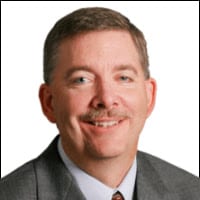
Mike Griswold serves as Vice President Analyst with Gartner’s Consumer Value Chain team, focusing on the retail supply chain. He is responsible for assisting supply leaders in understanding and implementing demand-driven supply chain principles that improve the performance of their supply chain. Mr. Griswold joined Gartner through the company’s acquisition of AMR. Previous roles include helping line-of-business users align corporate strategy with their supply chain process and technology initiatives. One recent study published by a team of Gartner analysts, including Mike Griswold is Retail Supply Chain Outlook 2019: Elevating the Consumer’s Shopping Experience. Mr. Griswold holds a BS in Business Management from Canisius College and an MBA from the Whittemore School of Business & Economics at the University of New Hampshire. Learn more about Gartner here: www.gartner.com
